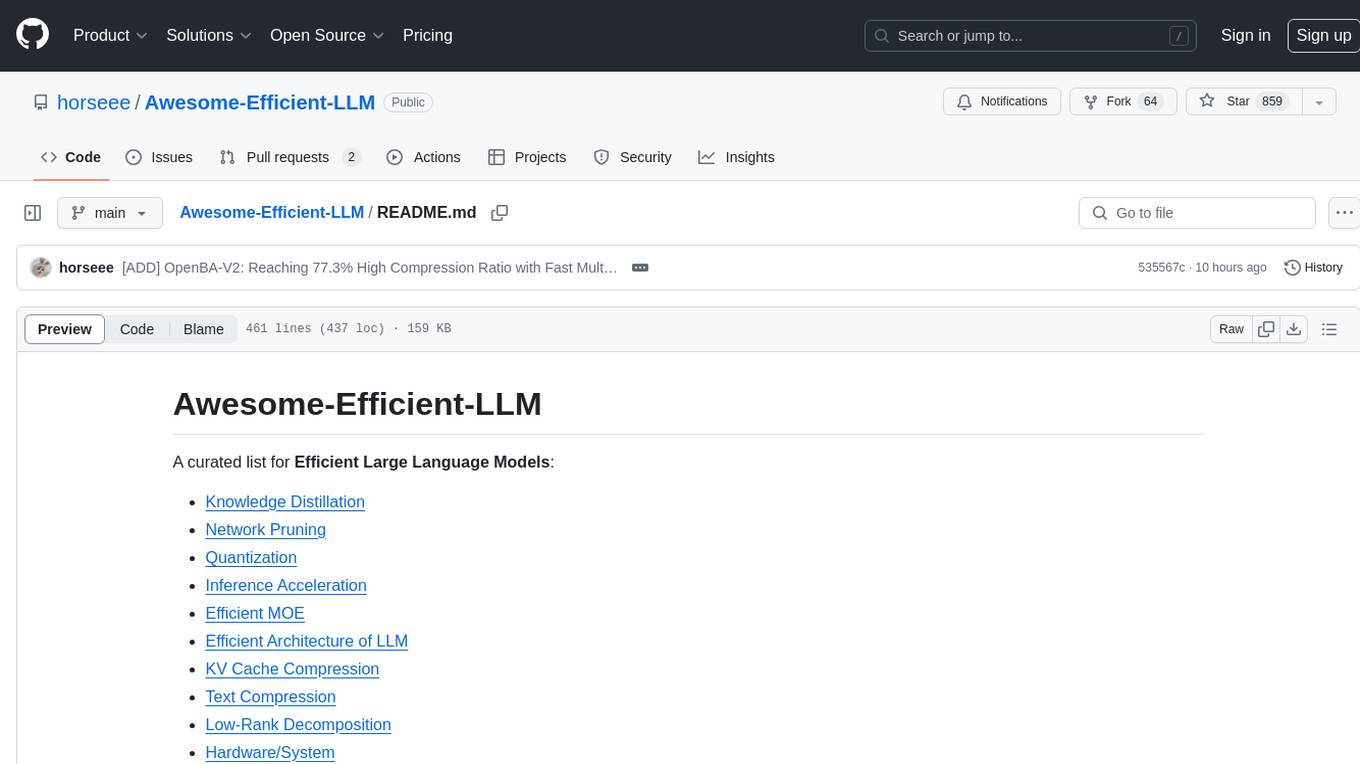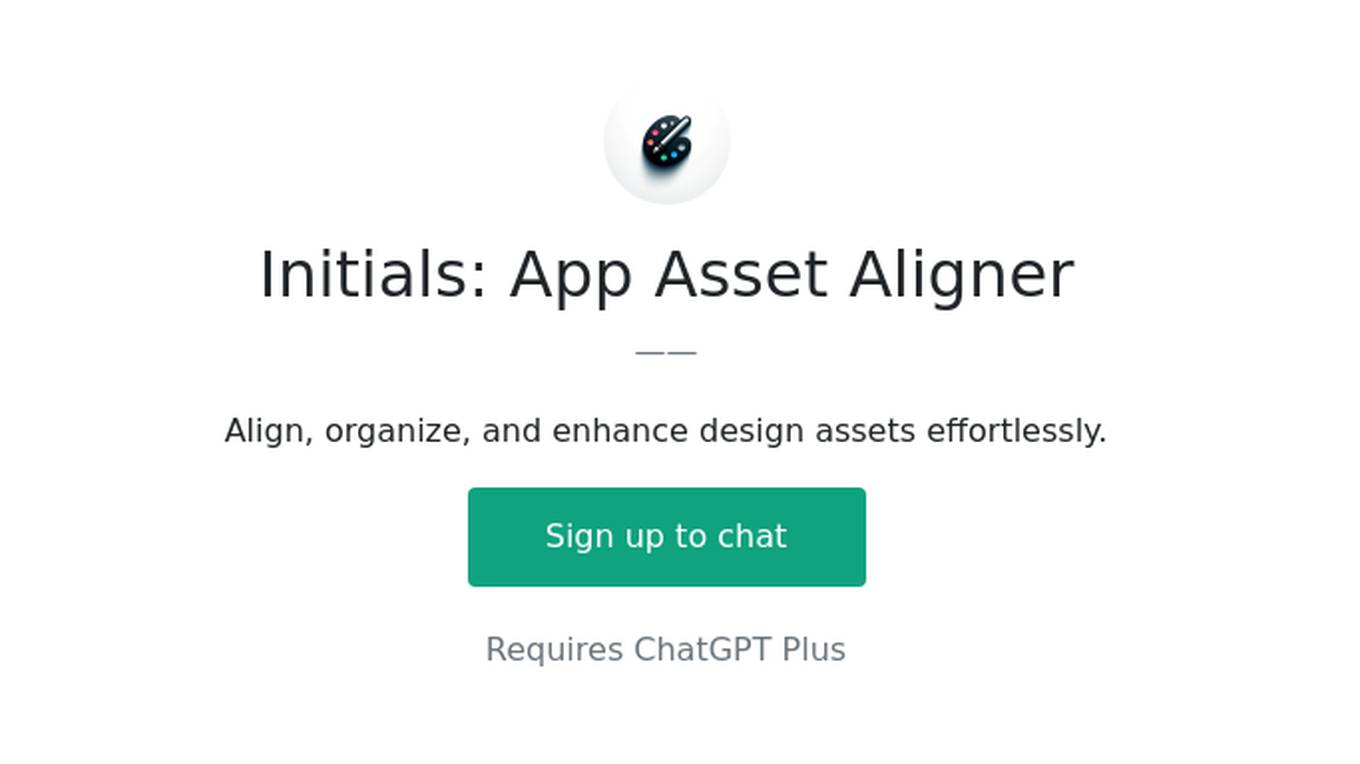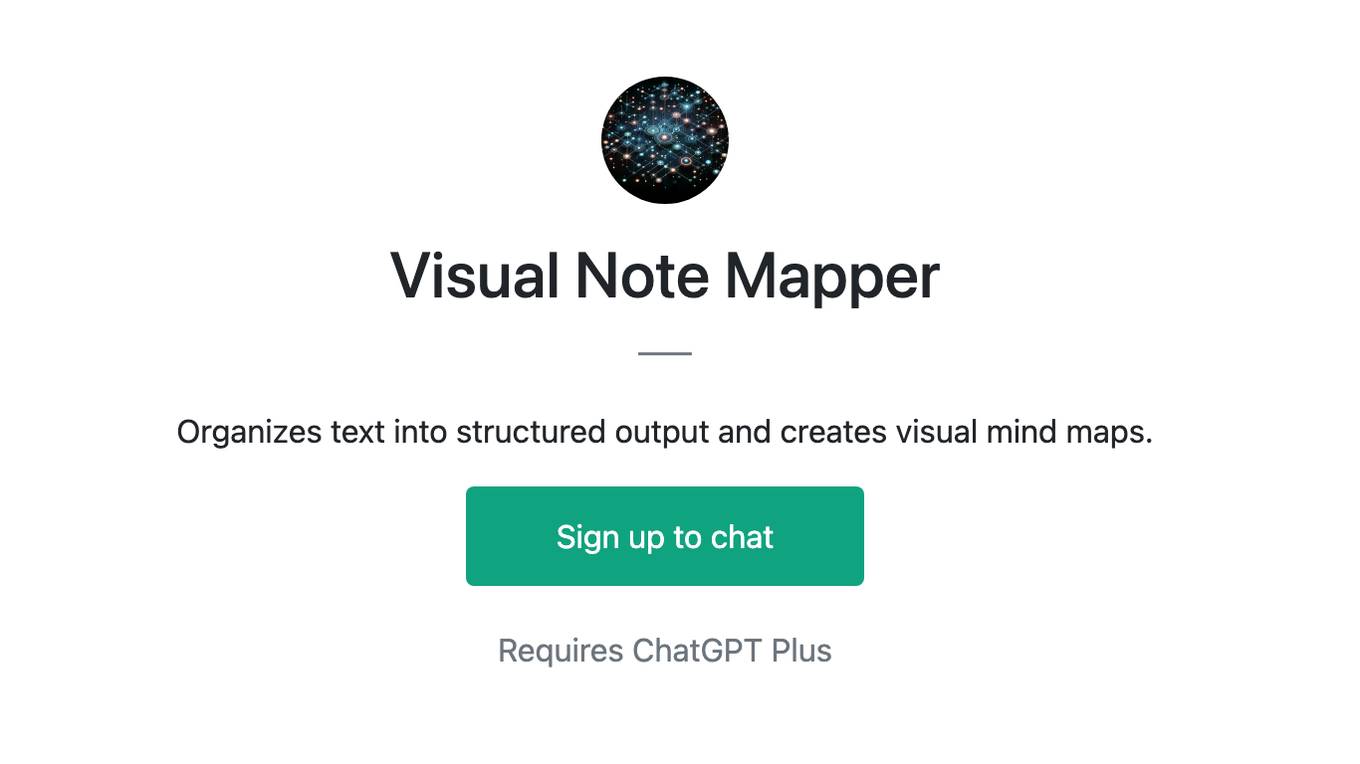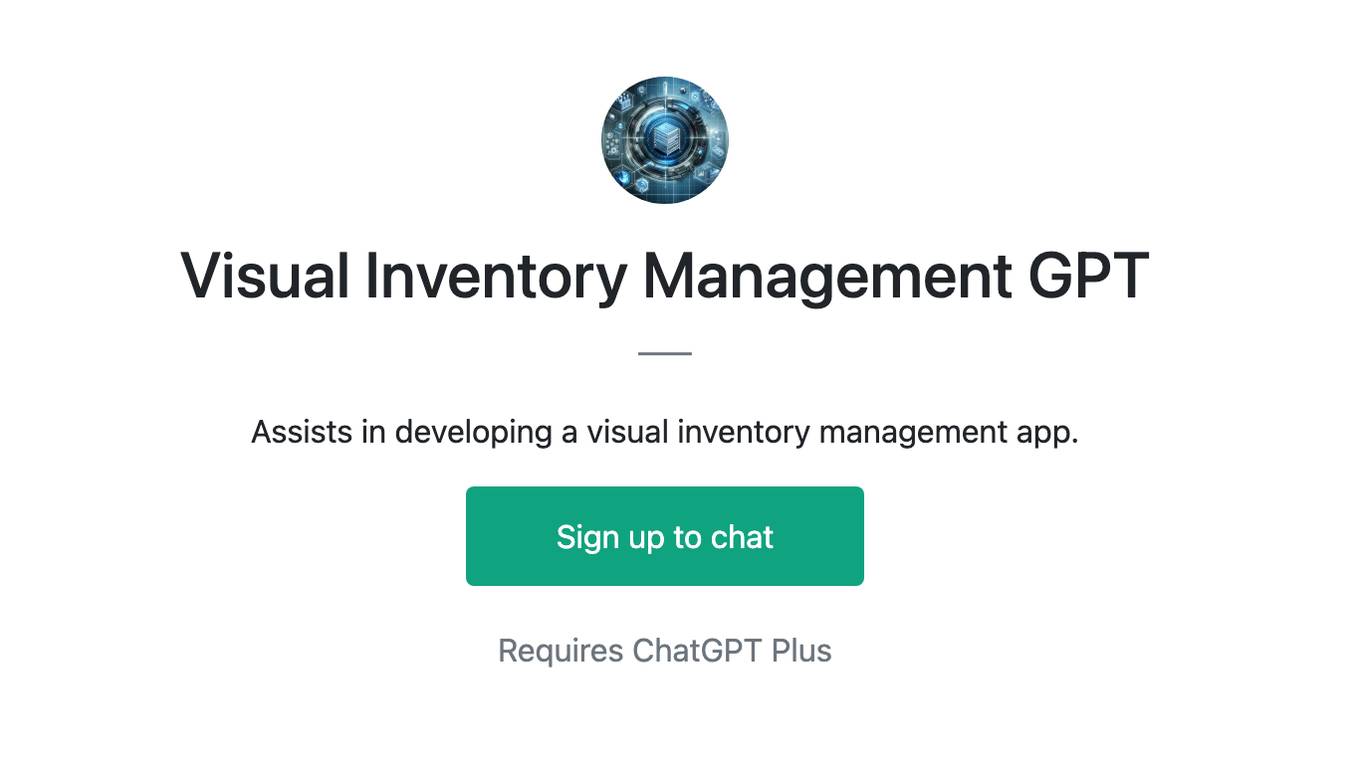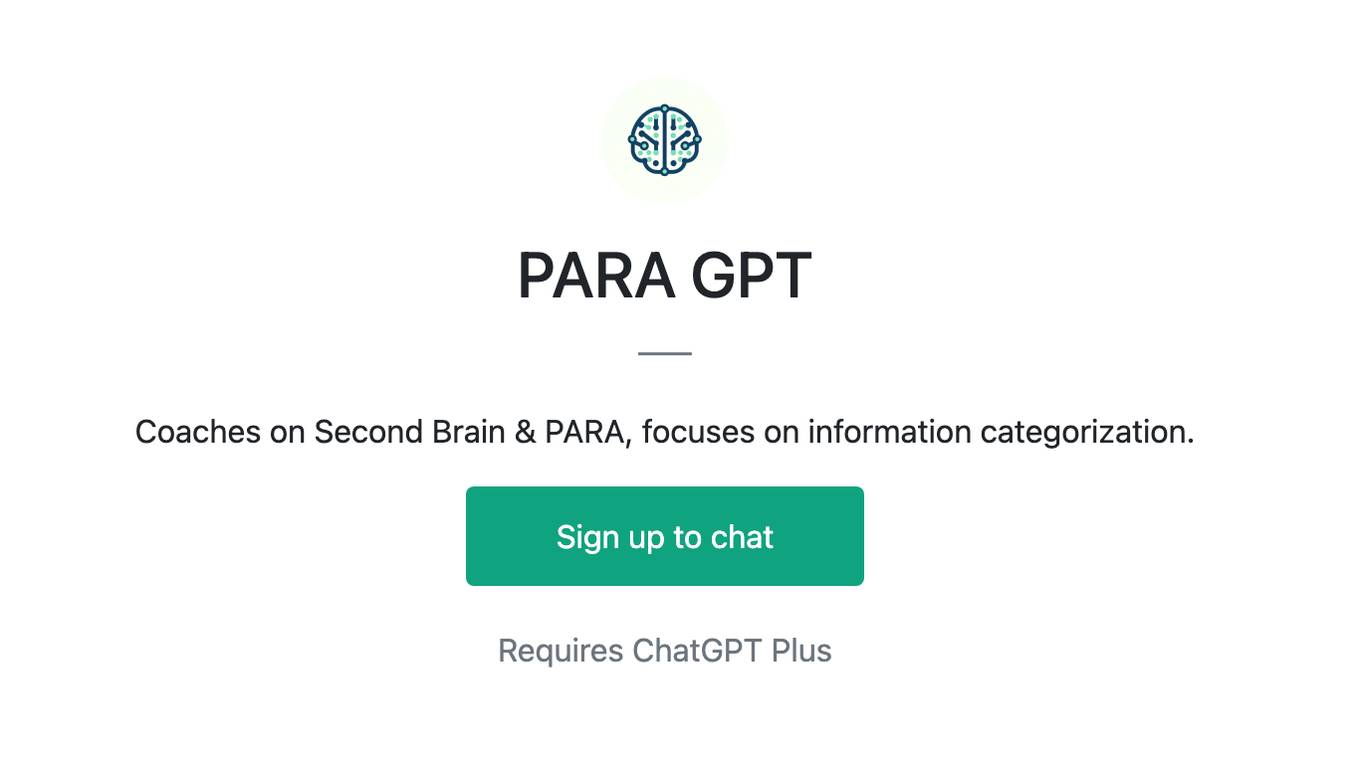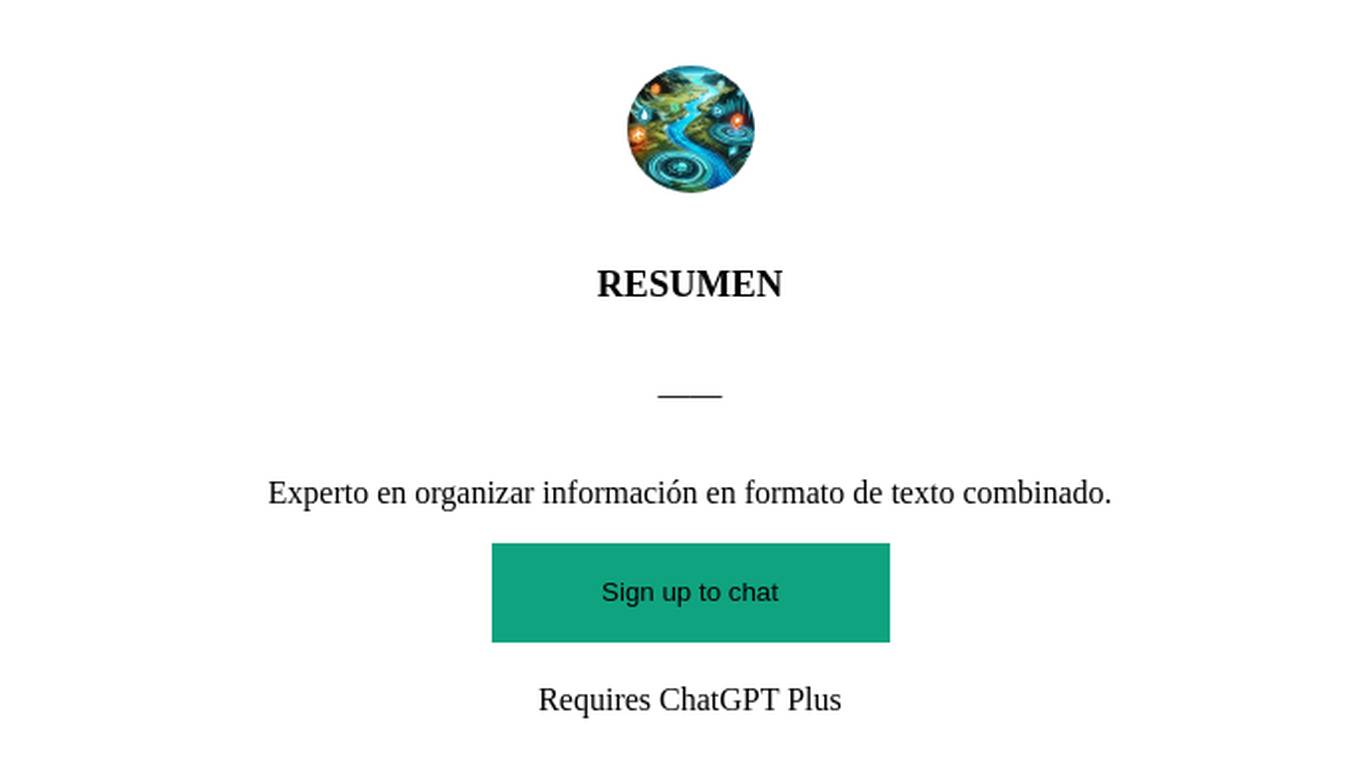Best AI tools for< organize beekeeping data >
20 - AI tool Sites
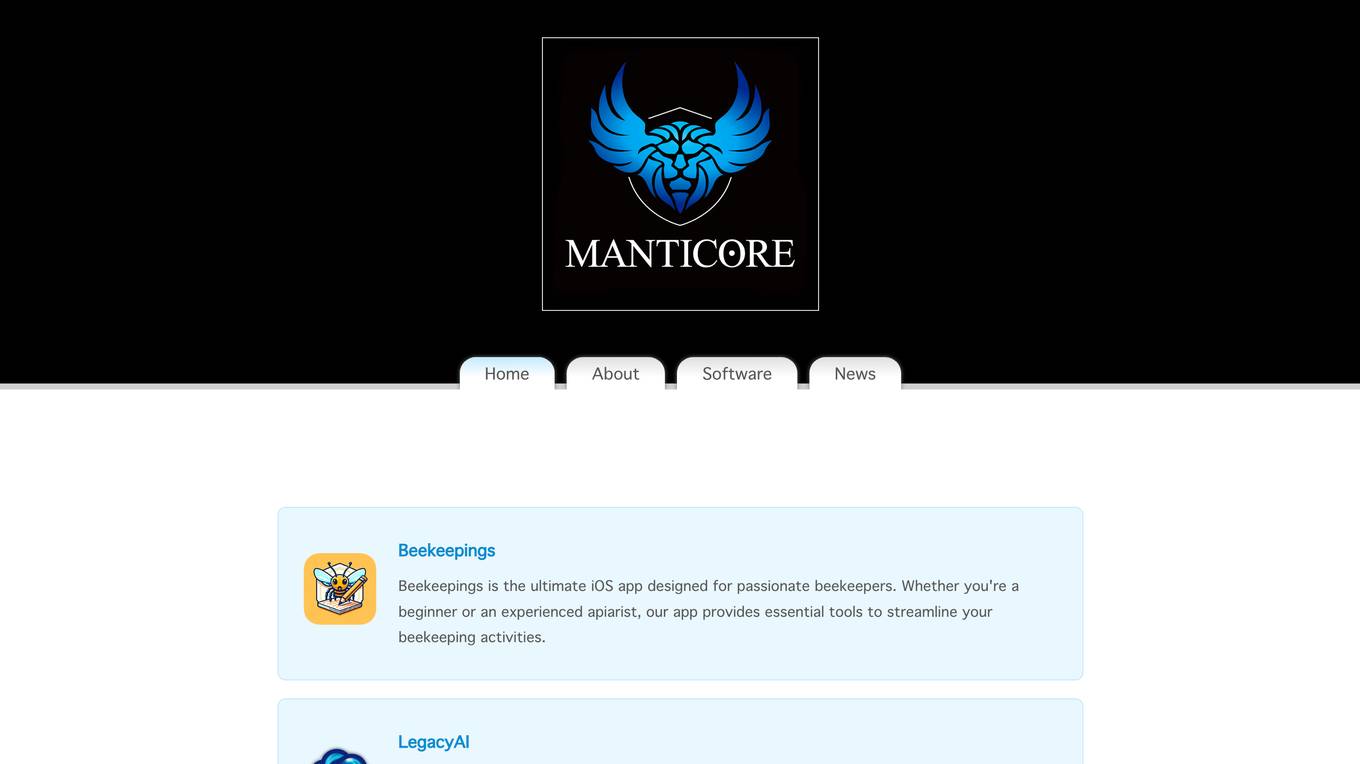
Manticore Software
Manticore Software offers two primary software applications: Beekeepings and LegacyAI. Beekeepings is an iOS app designed for beekeepers of all experience levels, providing essential tools to manage their beekeeping activities. LegacyAI, on the other hand, is a ChatGPT client tailored for older Macintosh systems, enabling users to have an AI-powered personal assistant on their legacy devices.

Playbook
Playbook is an AI-powered file manager for creatives, by creatives. It is the world's first collaborative creative space that combines the features of Dropbox and Pinterest, with 4TB of starter space. Playbook helps users organize, share, and collaborate on creative files and projects with their clients and team. It uses AI to organize work in a way that makes sense, and allows users to find files 10x faster than traditional cloud storage. Playbook also has a beautiful gallery feature that makes it easy to share work with clients and gather feedback.
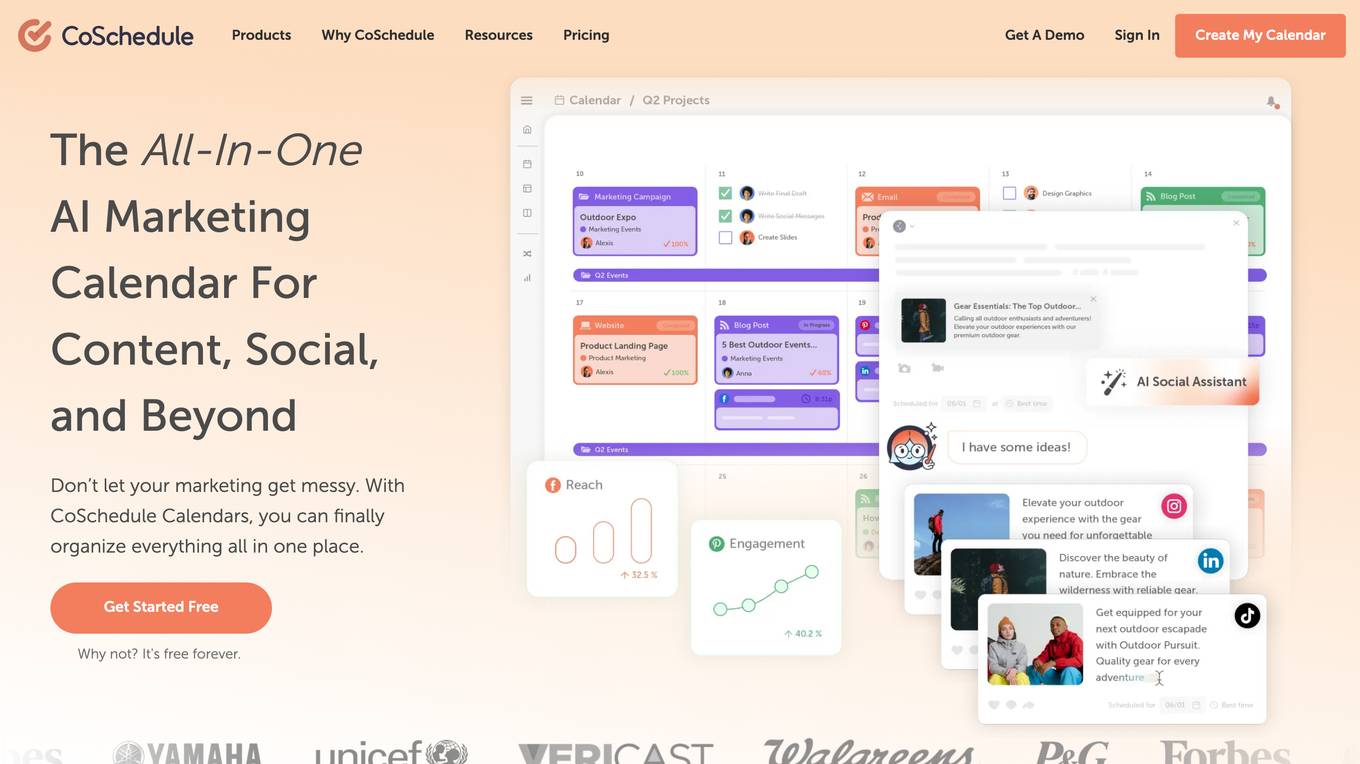
CoSchedule
CoSchedule is an all-in-one marketing calendar that helps businesses organize their marketing efforts. It offers a variety of features, including a social calendar, content calendar, marketing suite, and AI-powered tools. CoSchedule is designed to help businesses save time and improve their marketing results.
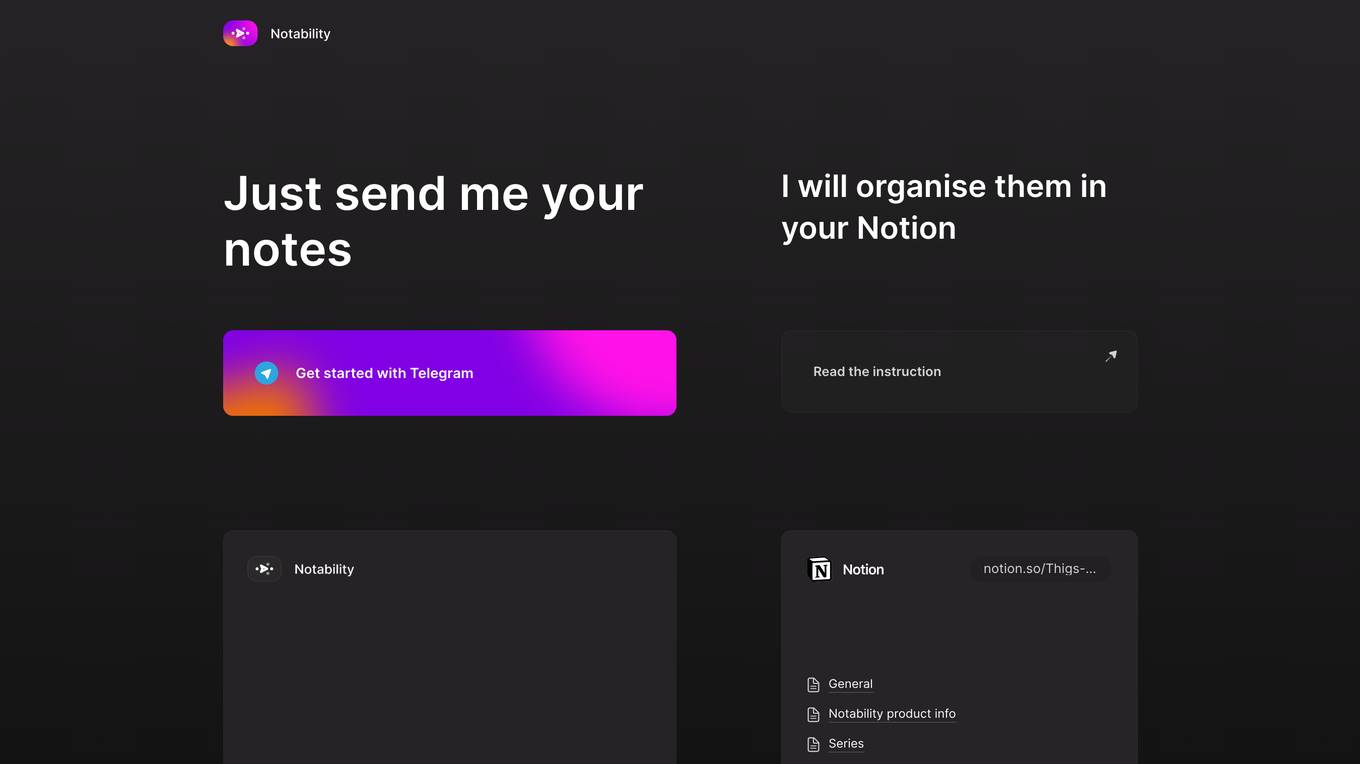
Note Organizer
The website offers a service where users can send their notes to be organized in Notion. Users can get started with Telegram and Slack integration is coming soon. The platform aims to streamline the process of organizing notes for better productivity and efficiency.

Eden Photos
Eden Photos is an AI-powered image organization tool that helps users effortlessly manage and categorize their images. By leveraging state-of-the-art image recognition AI, the tool automatically adds tags to images, arranges them into meaningful categories, and makes them easily searchable. Users can enjoy the convenience of having tags added to image metadata, import images once, and make changes to folders that are automatically reflected. The tool supports various image formats and offers both manual and AI-driven organization options. With flexible pricing plans and a user-centric approach, Eden Photos aims to simplify image organization for all users.

Datr
Datr is an AI-powered dating assistant that helps users organize their dates, find Instagram users nearby, and generate AI-generated conversation starters. It is designed to make online dating easier and more efficient.
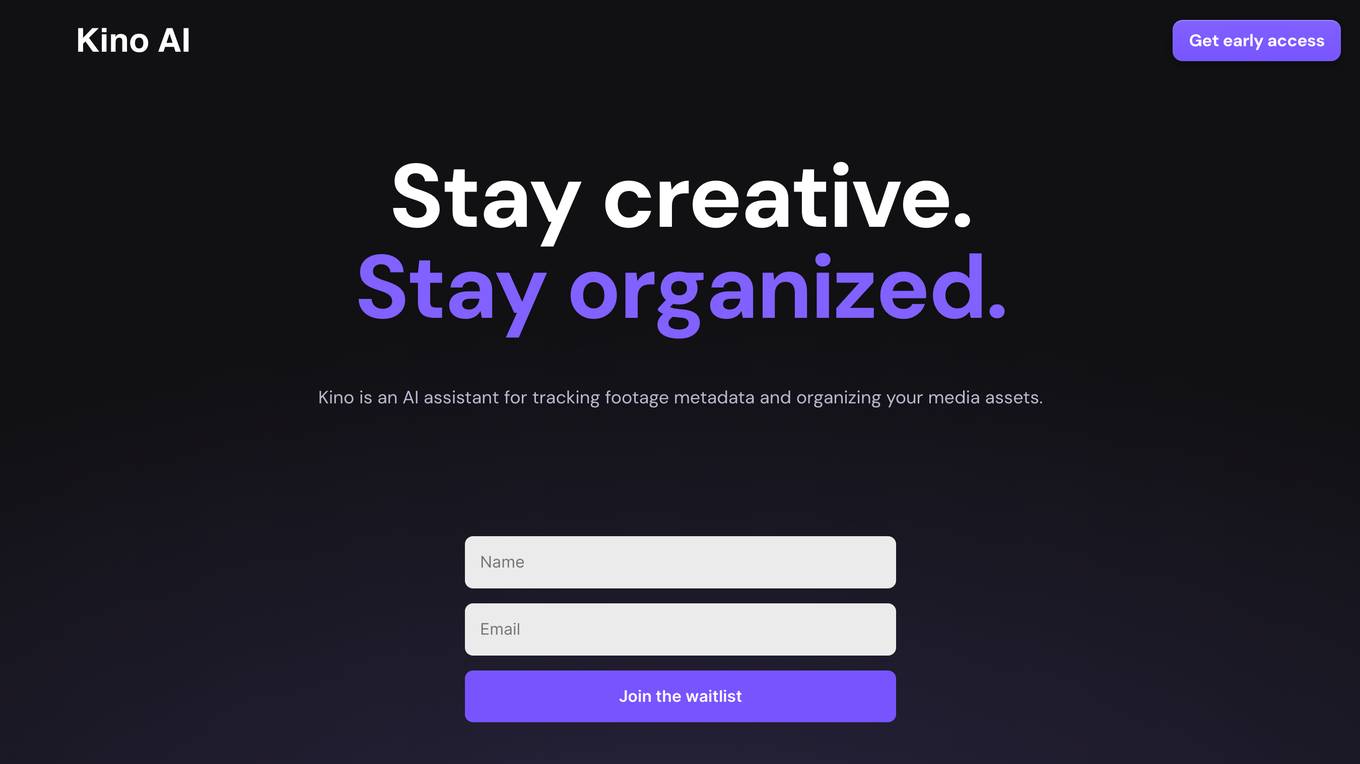
Kino AI
Kino AI is an AI assistant for tracking footage metadata and organizing your media assets. It's like an assistant editor, a digital imaging technician, and a scripty, all wrapped into one. Kino brings video together, offering smart features and efficient edits that get better with use. With Kino AI, you can backup, sync, and organize your footage, as well as utilize AI transcription, metadata labeling, and more. Kino AI automates some of the most mundane, menial, and essential parts of your workflow, freeing you up to be more creative.
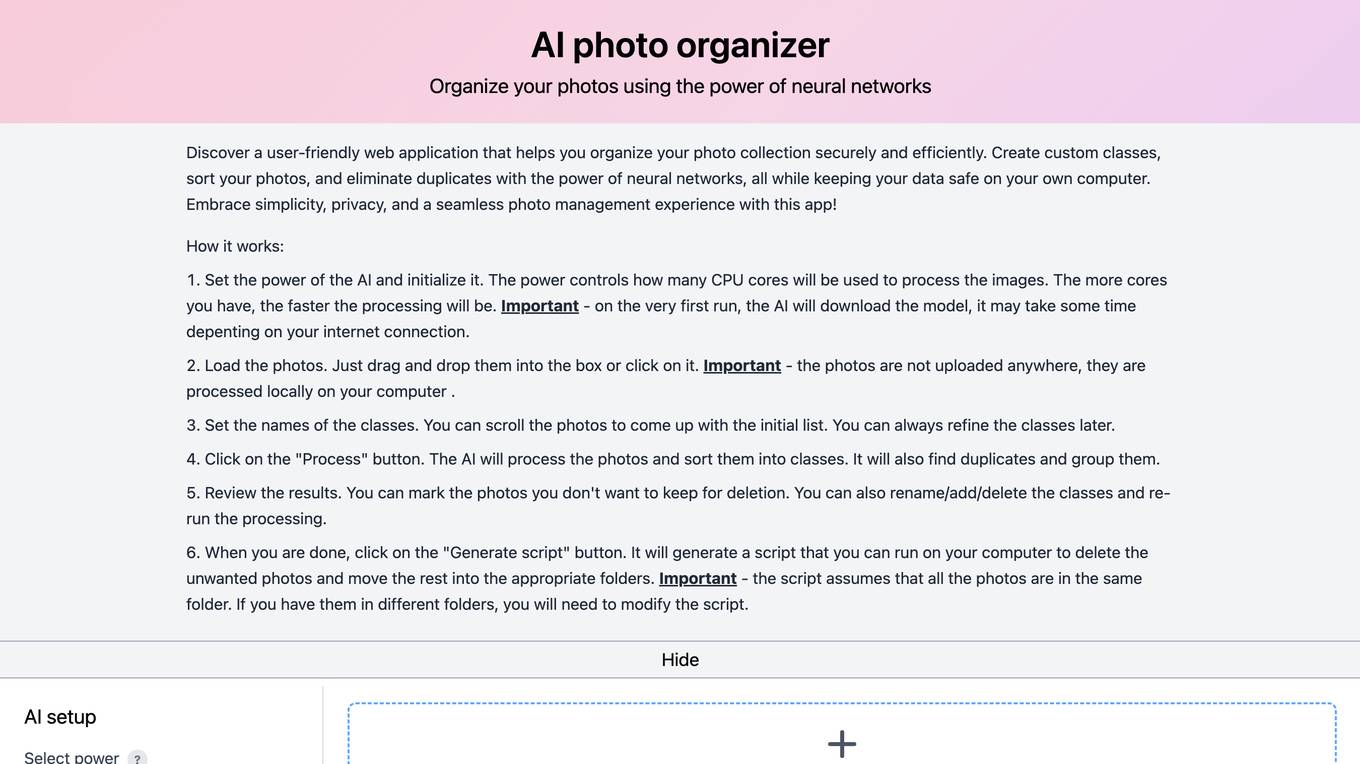
AI Photo Organizer
AI Photo Organizer is a user-friendly web application that helps you organize your photo collection securely and efficiently. It uses the power of neural networks to create custom classes, sort your photos, and eliminate duplicates, all while keeping your data safe on your own computer. With AI Photo Organizer, you can enjoy a simple, private, and seamless photo management experience.
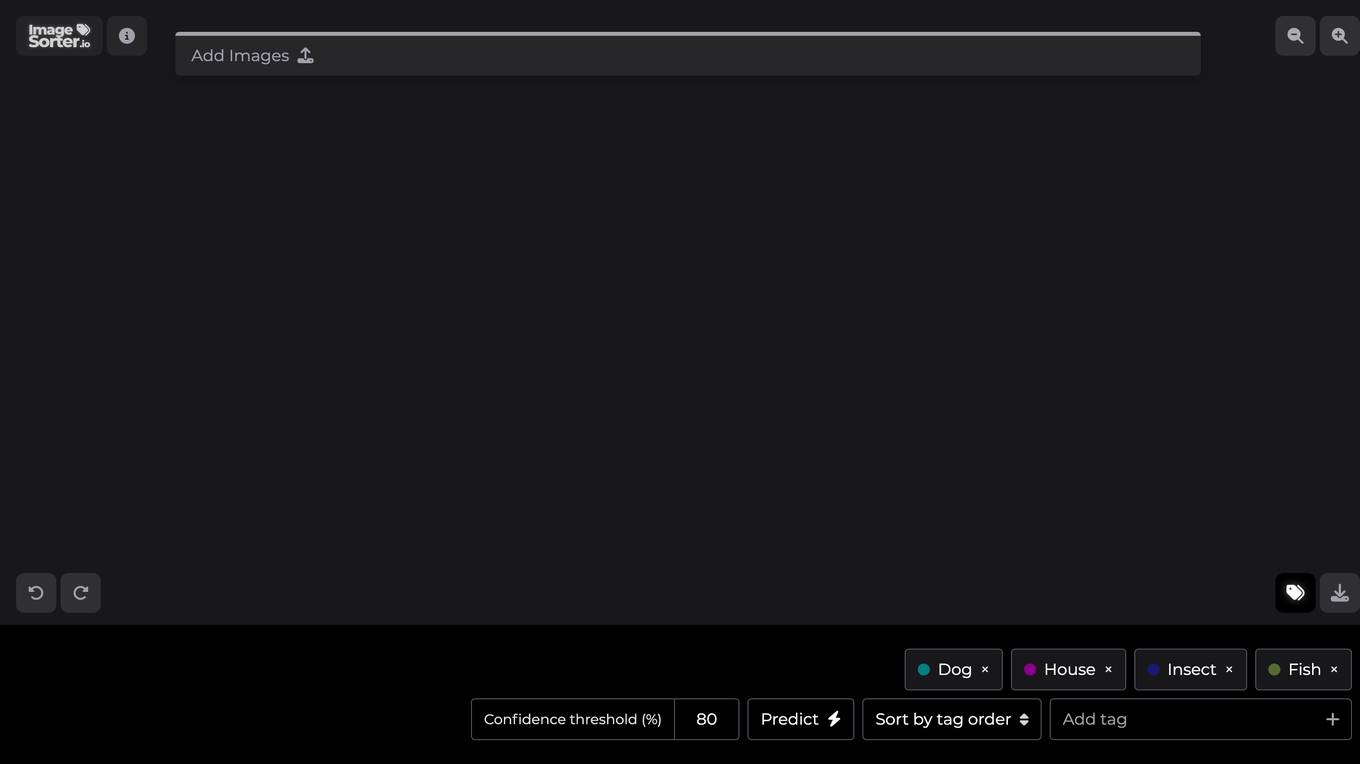
ImageSorter.io
ImageSorter.io is a free online tool designed to help users sort and organize their images efficiently. Users can easily select and add images to the tool, and then use simple drag-and-drop functionality to rearrange them. The tool also offers a confidence threshold feature for predicting and sorting images based on tags. With a user-friendly interface and intuitive controls, ImageSorter.io simplifies the process of managing image collections.
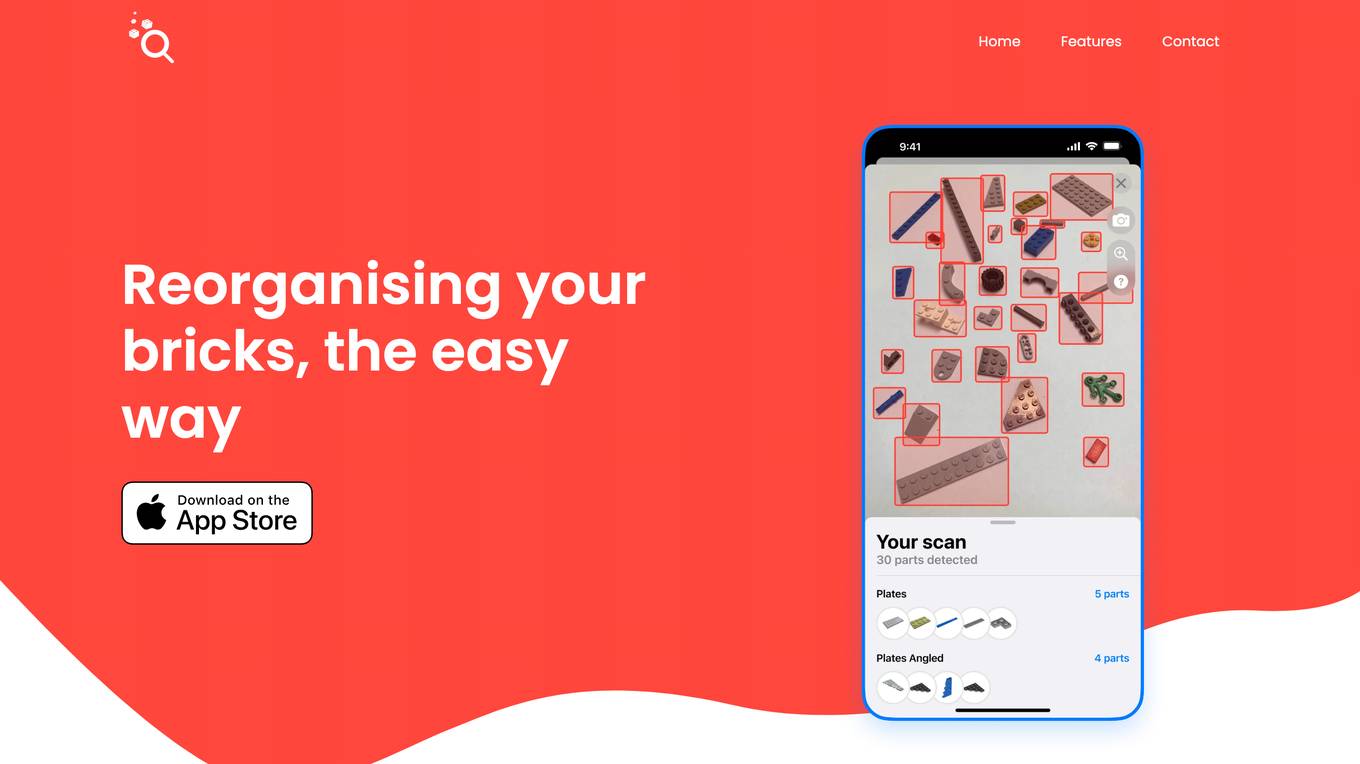
Bricksee
Bricksee is a mobile application designed to help LEGO enthusiasts organize and manage their brick sets efficiently. With over 10,000 sets available for search and organization, users can easily recover hidden bricks, access in-depth part information, and view detailed set information. The app allows users to lay out their bricks, take photos, and bring them back to life by identifying matching sets. Bricksee simplifies the process of rebuilding sets by providing a user-friendly interface and useful features.
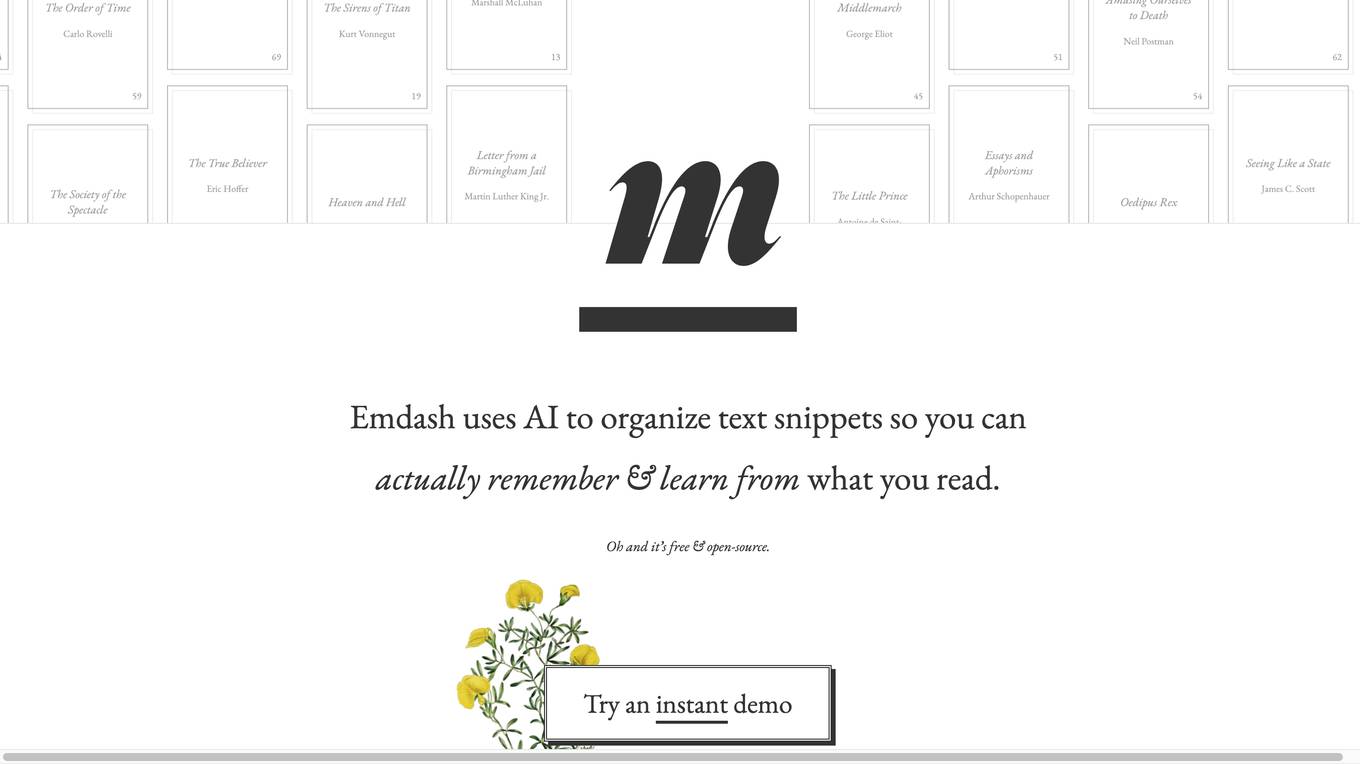
Emdash
Emdash is an AI-powered tool that helps you organize and learn from your reading. It uses AI to find similar ideas from other authors, and to instantly search for concepts. You can tag, rate, and note your thoughts, and export them back to epub for review on your e-reader.
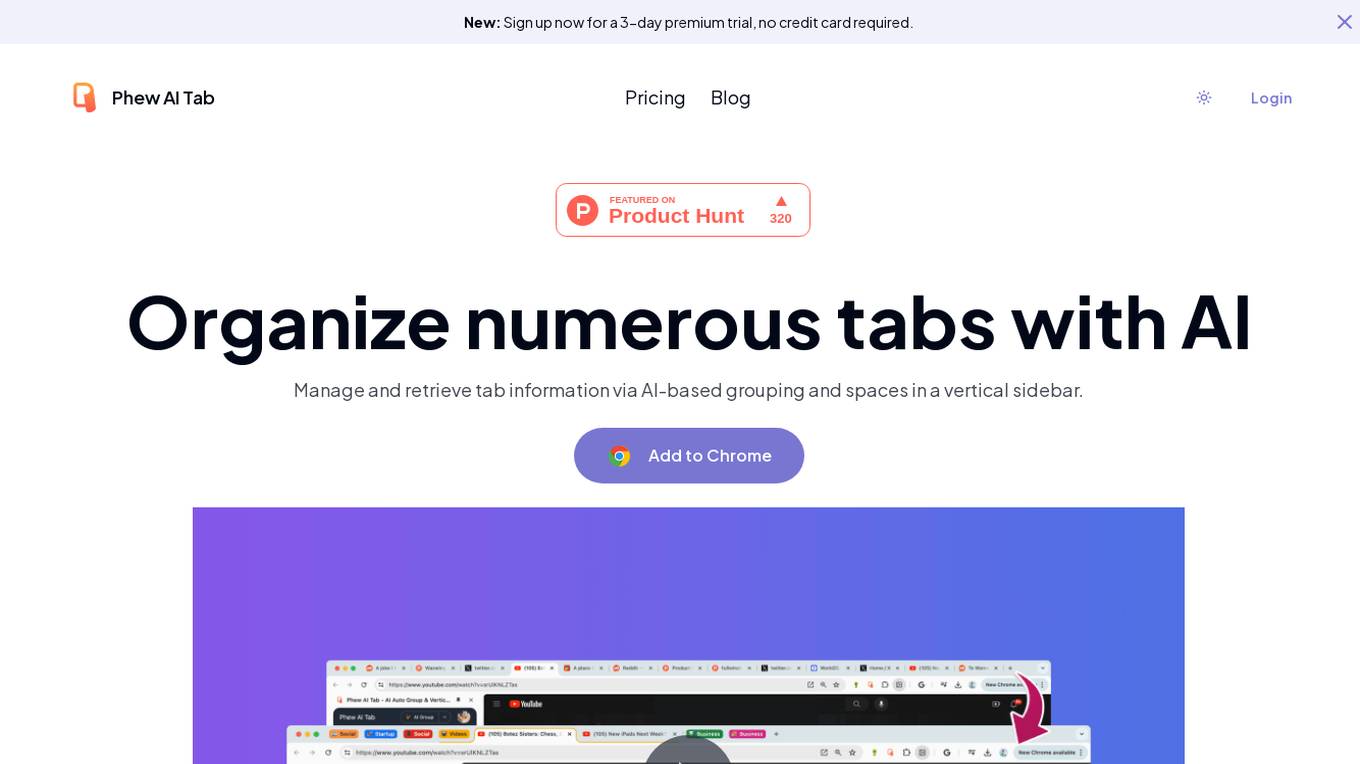
Phew AI Tab
Phew AI Tab is an AI-powered tab management tool that helps users organize and retrieve tab information efficiently. It utilizes AI-based grouping and spaces in a vertical sidebar to streamline tab management. With features like AI Grouping & Auto Collapse, AI Analyzing, AI Search, and AI-based Space & Cloud Sync, Phew AI Tab aims to enhance productivity and user experience. The tool ensures privacy with military-grade protection and offers seamless synchronization across devices.

Bluedot
Bluedot is a web application that provides users with a workspace to organize and manage their digital content efficiently. Users can create collections, upload videos, and collaborate with others seamlessly. The application offers features such as drag-and-drop functionality, keyboard shortcuts for navigation, and integration with other tools for enhanced productivity.
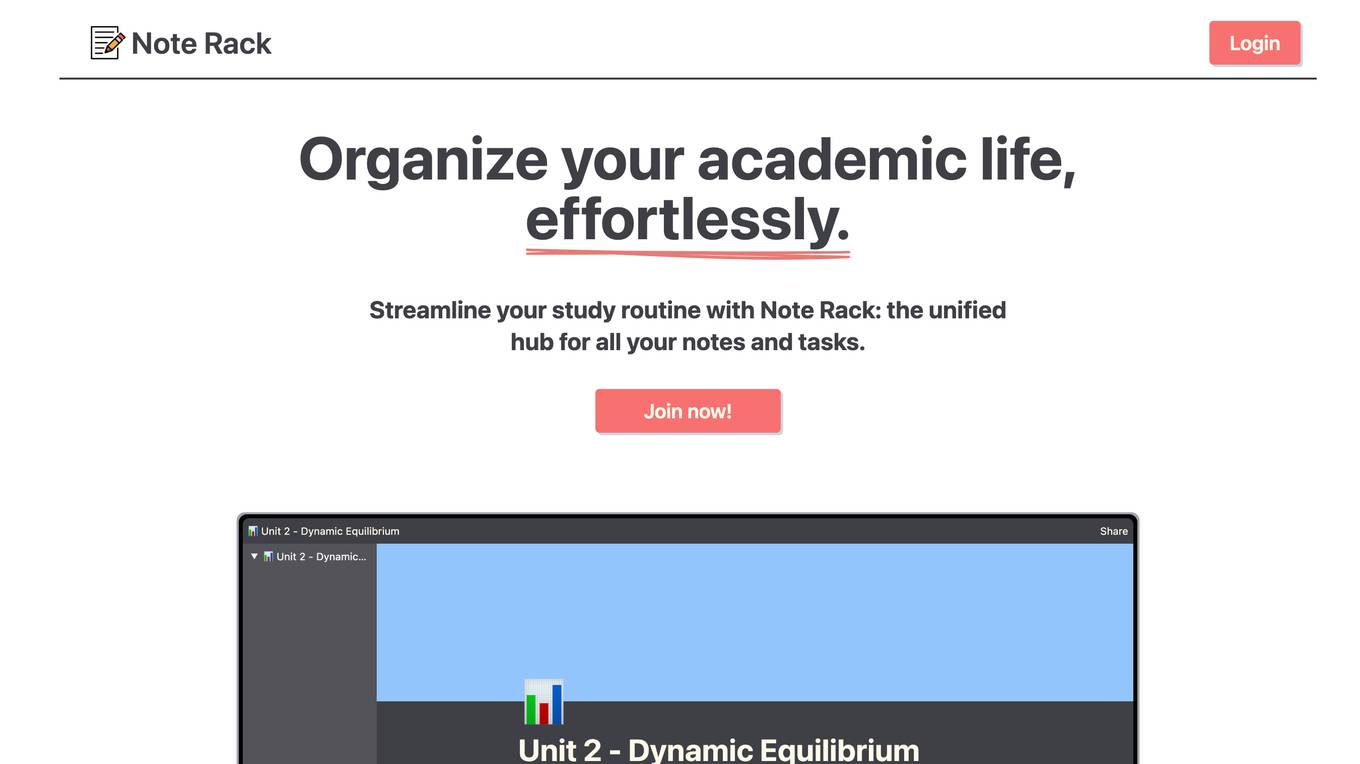
Note Rack
Note Rack is an AI-powered application designed to help students organize their academic life efficiently. It serves as a centralized platform for managing notes and tasks, enabling users to streamline their study routines. With features like collaboration, sharing, powerful search function, and ChatGPT integration, Note Rack aims to enhance the overall learning experience by providing personalized study assistance and real-time answers to user queries.
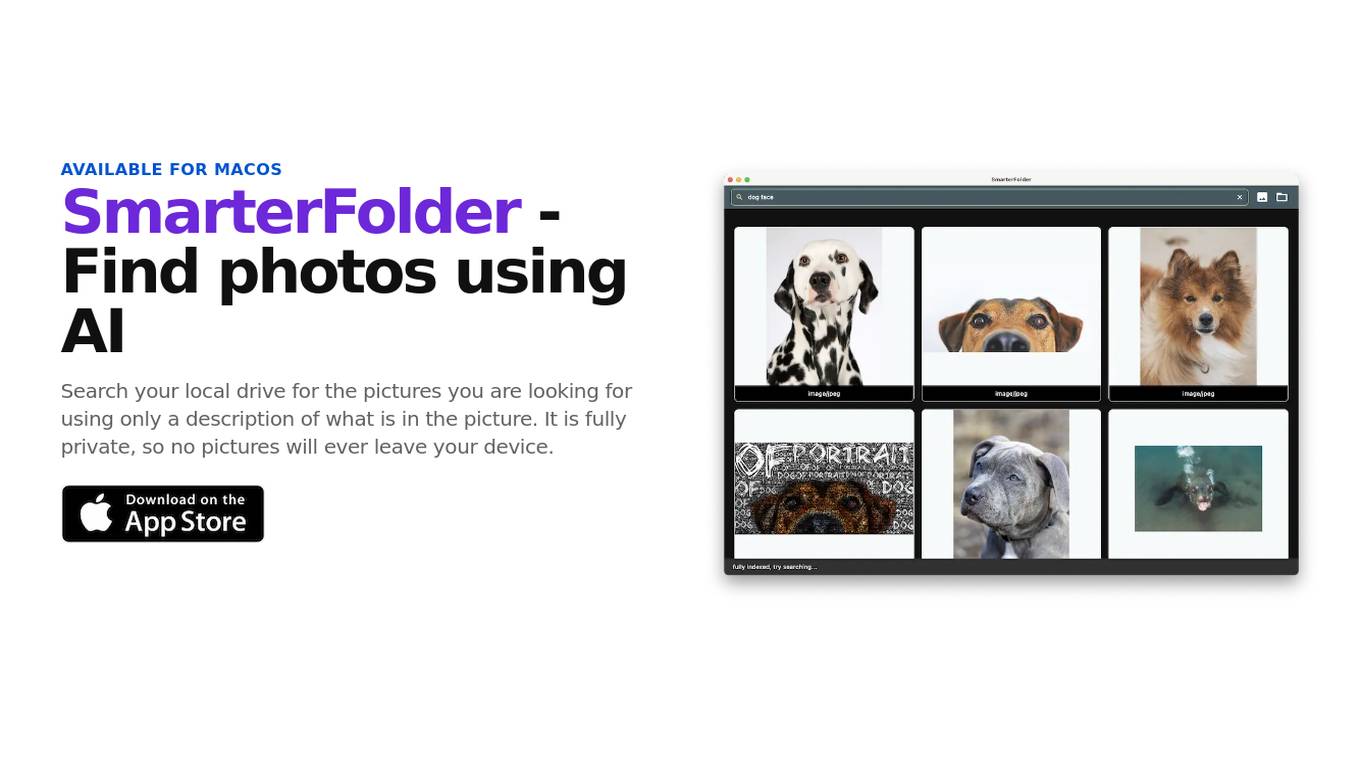
SmarterFolder
SmarterFolder is an AI-powered tool designed for MacOS that enables users to perform semantic image searches on their local drive. By utilizing AI technology, users can find photos based on descriptions of the content within the images. The tool ensures full privacy as no images are shared or stored externally, providing a secure and efficient way to organize and retrieve photos.
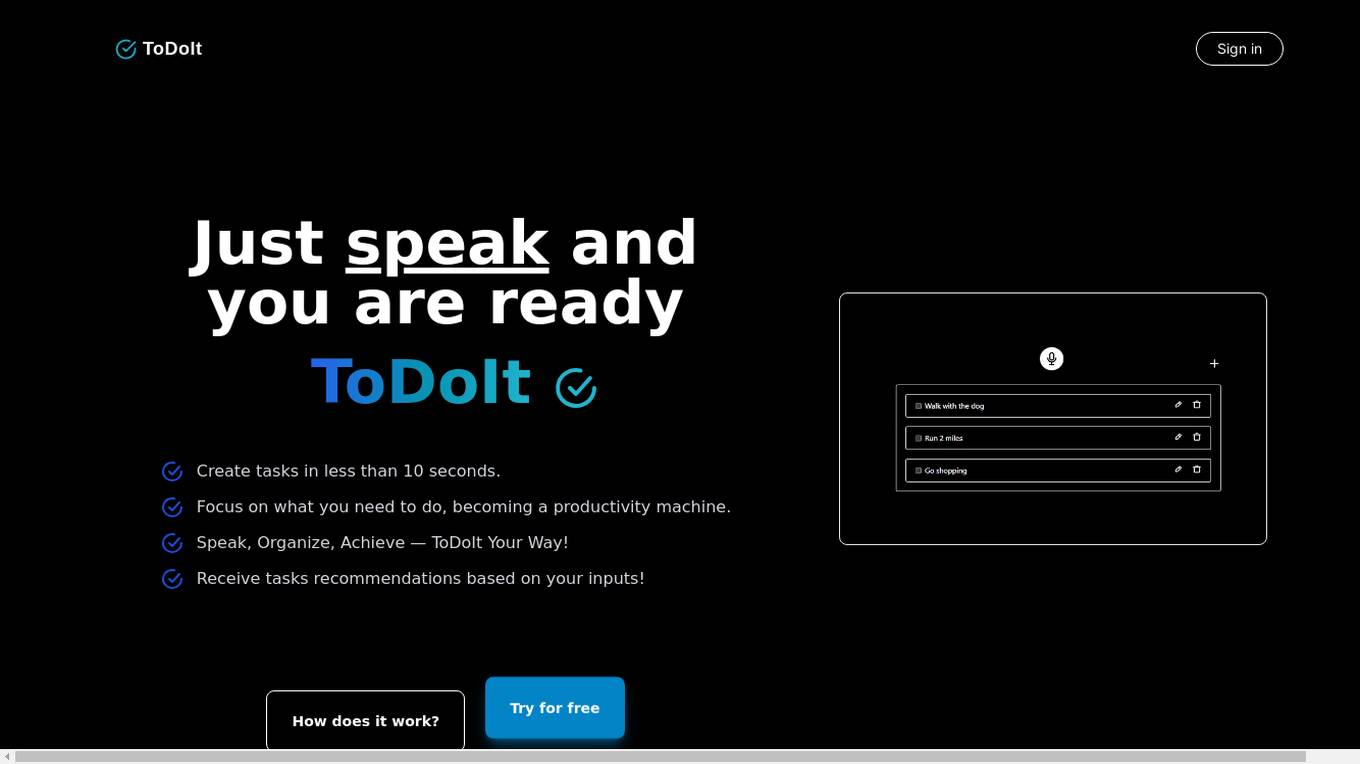
ToDoIt
ToDoIt is a voice and AI-powered to-do list application that helps users manage their tasks efficiently using natural language. Users can create tasks in less than 10 seconds by speaking, receive task recommendations based on their inputs, and enjoy smart task automation for improved productivity. The app offers different pricing plans with features like AI voice transcription, AI-powered task recommendations, and unlimited task recommendation refreshes. ToDoIt prioritizes user privacy and security by securely storing data and deleting audio files after transcription. Users can leave feedback through Insighto and benefit from the app's responsive web version.
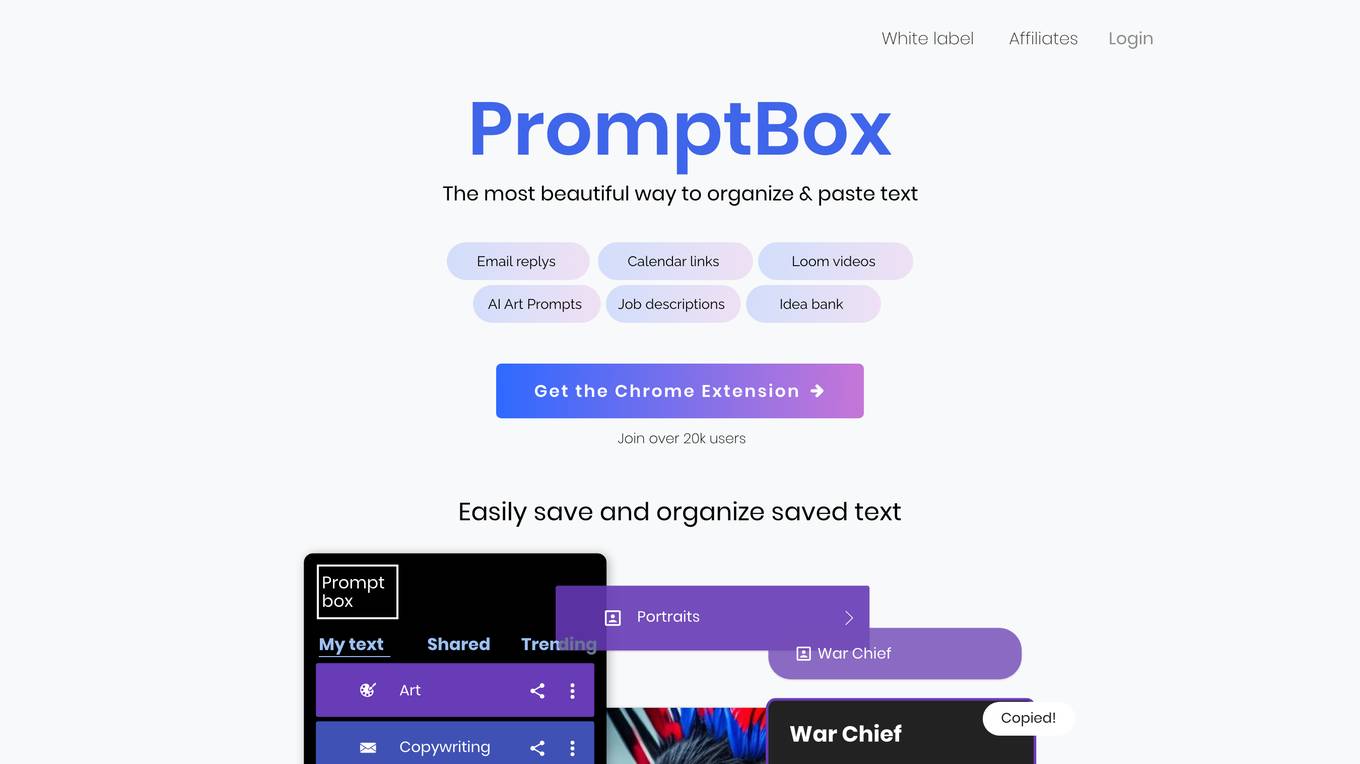
PromptBox
PromptBox is a tool that allows users to easily save and organize frequently used text. It offers a variety of features to help users stay organized, including the ability to create folders, add colors and pictures, and share or sell prompts. PromptBox can be used with a variety of applications, including email, calendar, and video conferencing. It is also available as a Chrome extension.

Evernote
Evernote is a powerful note-taking application that helps users organize their notes, tasks, and schedules in one place. It offers features such as AI-powered search, collaboration tools, web clipping, document scanning, and personalization options. Users can access their information across all devices, even in offline mode. Evernote is suitable for executives, entrepreneurs, students, and creative individuals to capture and arrange their ideas efficiently.
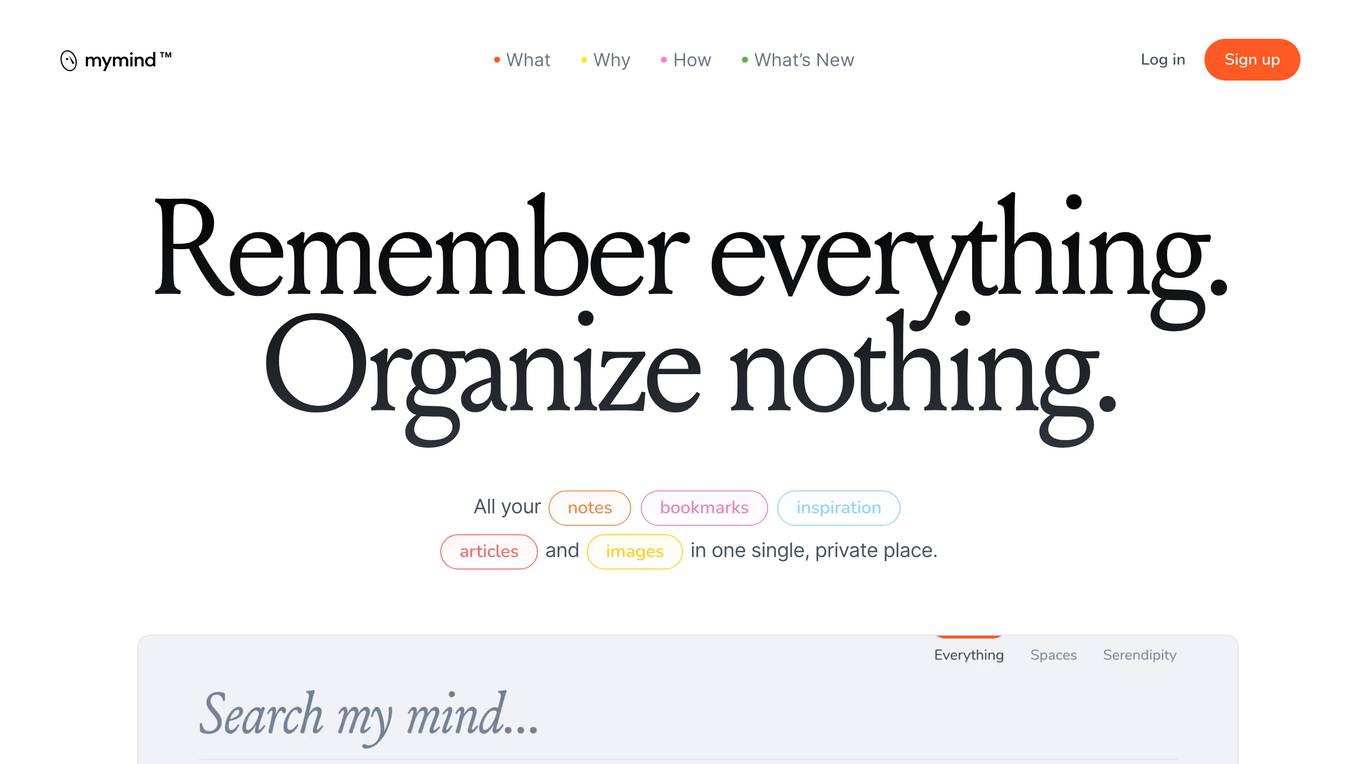
mymind
mymind is a personal information manager that helps you remember everything without having to organize anything. It's like a second brain that you can use to store all your notes, bookmarks, inspiration, articles, and images in one place. mymind is powered by artificial intelligence, so it can automatically organize and visualize your information for you. This makes it easy to find what you're looking for, when you need it.
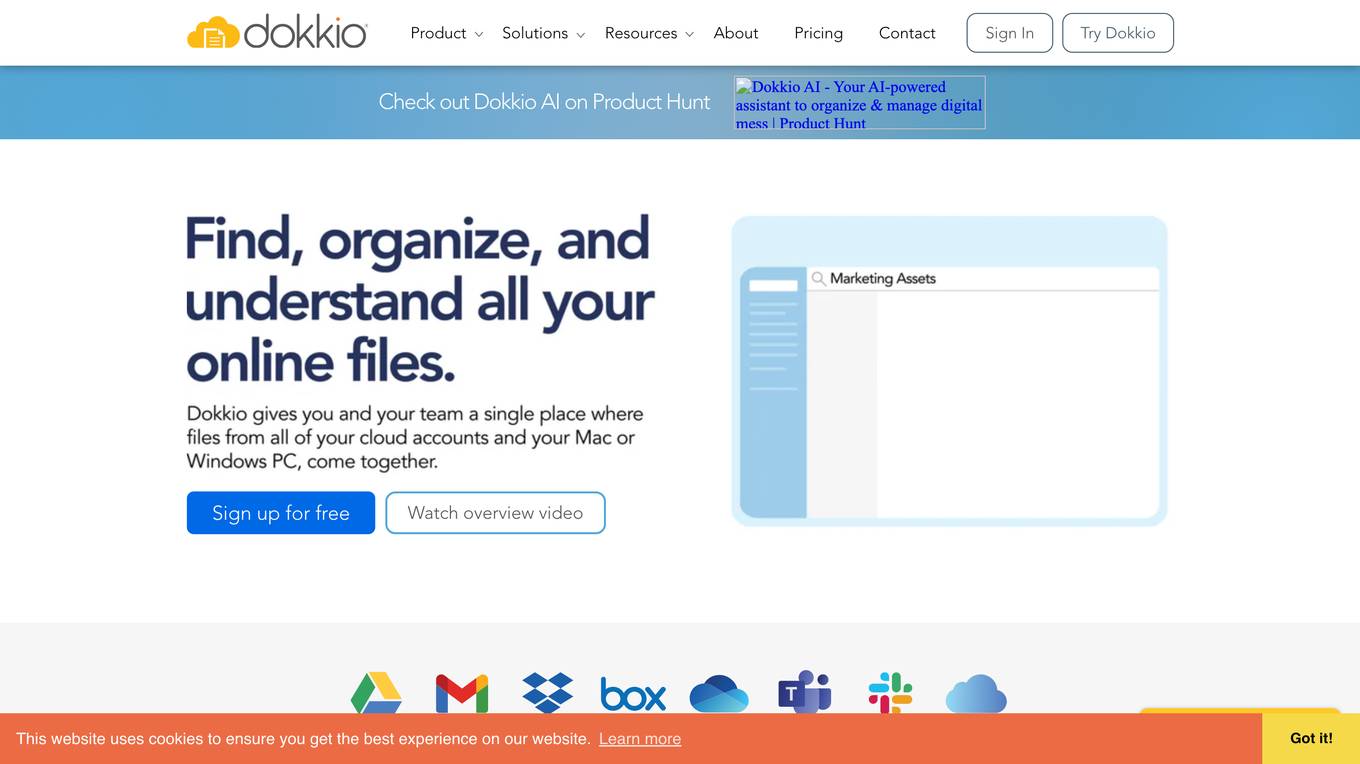
Dokkio
Dokkio is an AI-powered tool that helps you find, organize, and understand all of your online files. With Dokkio, you can finally work with all your files, wherever they live – at the same time. Dokkio provides tools that turn simple storage into productive team collaboration.
20 - Open Source AI Tools
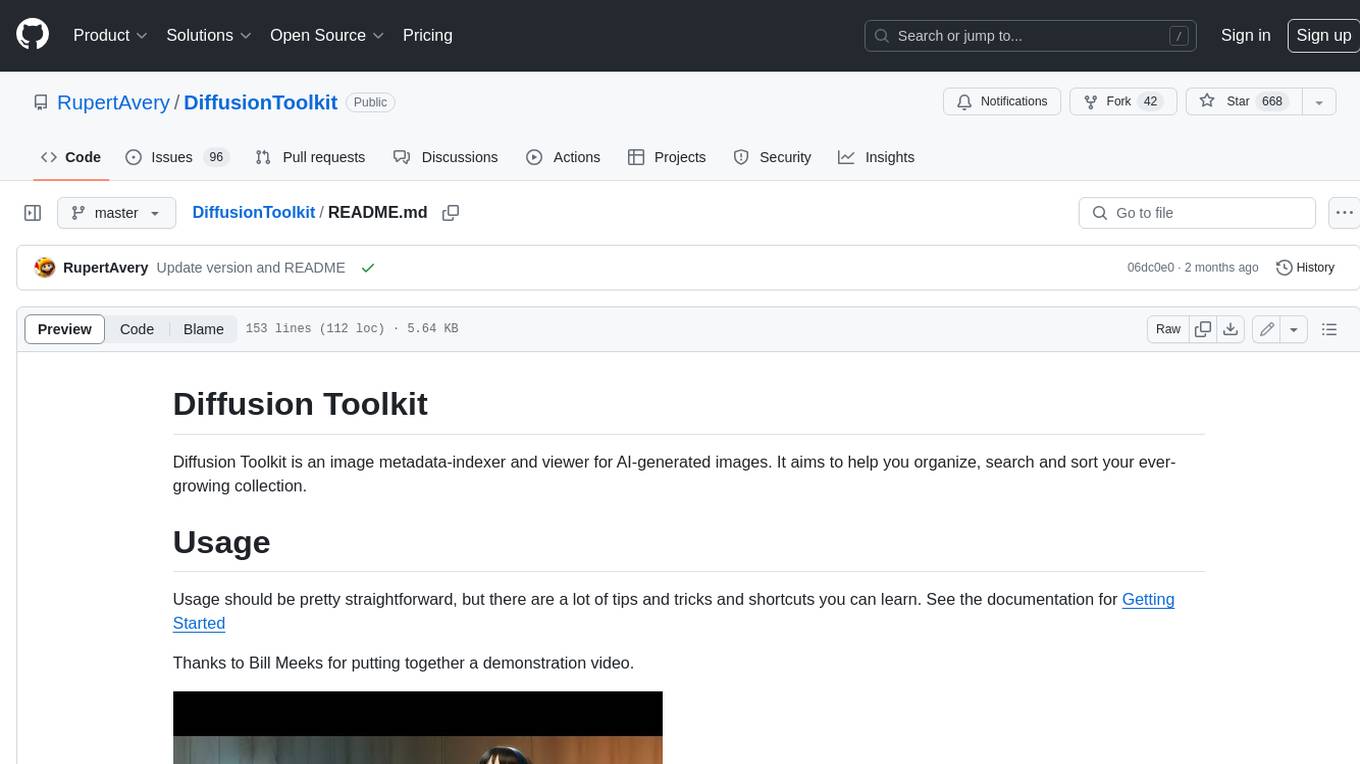
DiffusionToolkit
Diffusion Toolkit is an image metadata-indexer and viewer for AI-generated images. It helps you organize, search, and sort your ever-growing collection. Key features include: - Scanning images and storing prompts and other metadata (PNGInfo) - Searching for images using simple queries or filters - Viewing images and metadata easily - Tagging images with favorites, ratings, and NSFW flags - Sorting images by date created, aesthetic score, or rating - Auto-tagging NSFW images by keywords - Blurring images tagged as NSFW - Creating and managing albums - Viewing and searching prompts - Drag-and-drop functionality Diffusion Toolkit supports various image formats, including JPG/JPEG, PNG, WebP, and TXT metadata. It also supports metadata formats from popular AI image generators like AUTOMATIC1111, InvokeAI, NovelAI, Stable Diffusion, and more. You can use Diffusion Toolkit even on images without metadata and still enjoy features like rating and album management.
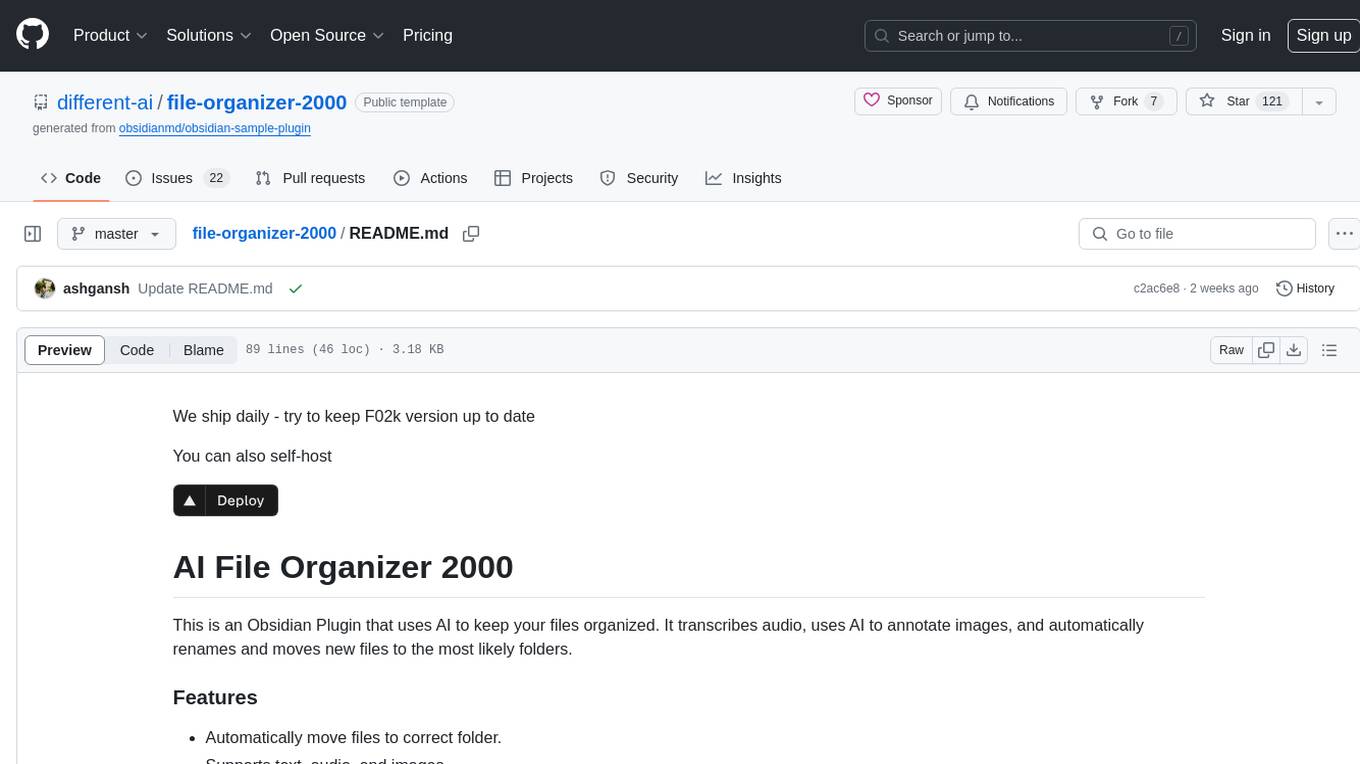
file-organizer-2000
AI File Organizer 2000 is an Obsidian Plugin that uses AI to transcribe audio, annotate images, and automatically organize files by moving them to the most likely folders. It supports text, audio, and images, with upcoming local-first LLM support. Users can simply place unorganized files into the 'Inbox' folder for automatic organization. The tool renames and moves files quickly, providing a seamless file organization experience. Self-hosting is also possible by running the server and enabling the 'Self-hosted' option in the plugin settings. Join the community Discord server for more information and use the provided iOS shortcut for easy access on mobile devices.
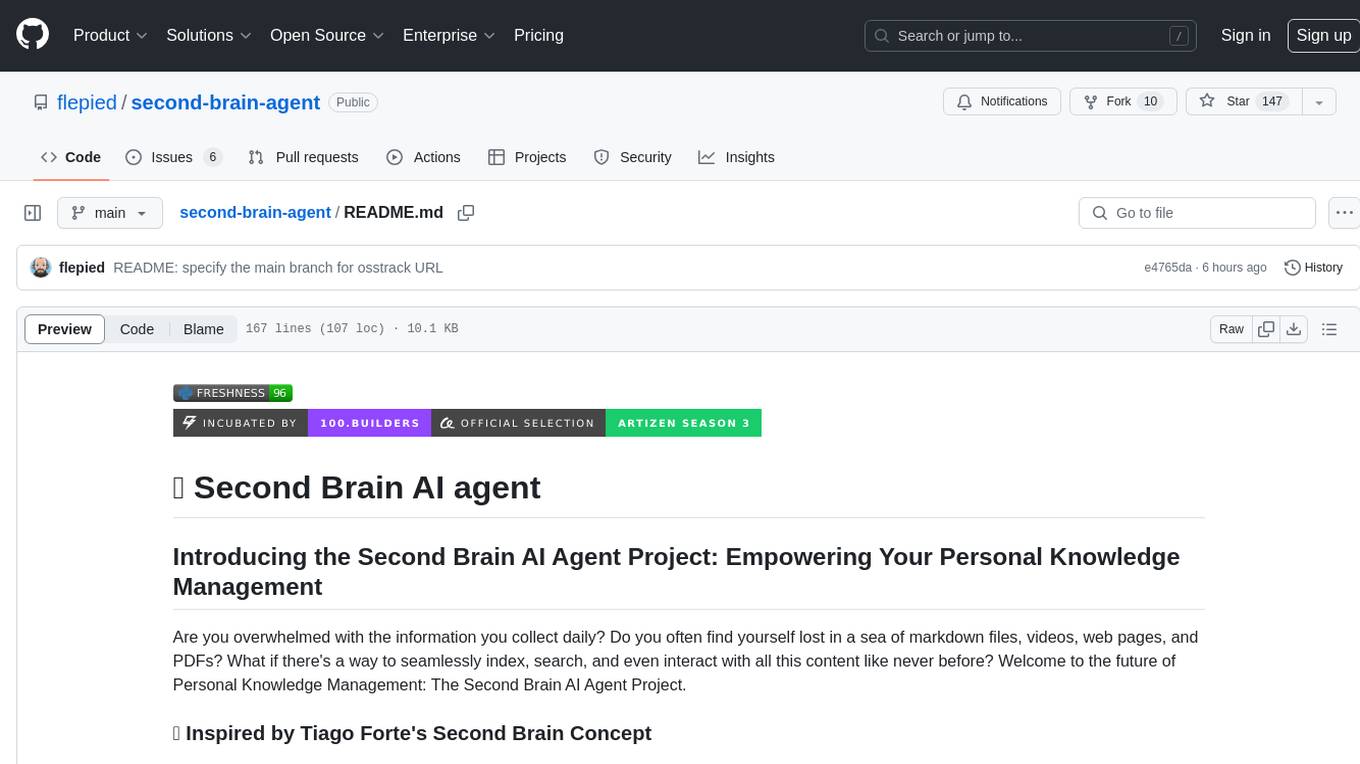
second-brain-agent
The Second Brain AI Agent Project is a tool designed to empower personal knowledge management by automatically indexing markdown files and links, providing a smart search engine powered by OpenAI, integrating seamlessly with different note-taking methods, and enhancing productivity by accessing information efficiently. The system is built on LangChain framework and ChromaDB vector store, utilizing a pipeline to process markdown files and extract text and links for indexing. It employs a Retrieval-augmented generation (RAG) process to provide context for asking questions to the large language model. The tool is beneficial for professionals, students, researchers, and creatives looking to streamline workflows, improve study sessions, delve deep into research, and organize thoughts and ideas effortlessly.

cognita
Cognita is an open-source framework to organize your RAG codebase along with a frontend to play around with different RAG customizations. It provides a simple way to organize your codebase so that it becomes easy to test it locally while also being able to deploy it in a production ready environment. The key issues that arise while productionizing RAG system from a Jupyter Notebook are: 1. **Chunking and Embedding Job** : The chunking and embedding code usually needs to be abstracted out and deployed as a job. Sometimes the job will need to run on a schedule or be trigerred via an event to keep the data updated. 2. **Query Service** : The code that generates the answer from the query needs to be wrapped up in a api server like FastAPI and should be deployed as a service. This service should be able to handle multiple queries at the same time and also autoscale with higher traffic. 3. **LLM / Embedding Model Deployment** : Often times, if we are using open-source models, we load the model in the Jupyter notebook. This will need to be hosted as a separate service in production and model will need to be called as an API. 4. **Vector DB deployment** : Most testing happens on vector DBs in memory or on disk. However, in production, the DBs need to be deployed in a more scalable and reliable way. Cognita makes it really easy to customize and experiment everything about a RAG system and still be able to deploy it in a good way. It also ships with a UI that makes it easier to try out different RAG configurations and see the results in real time. You can use it locally or with/without using any Truefoundry components. However, using Truefoundry components makes it easier to test different models and deploy the system in a scalable way. Cognita allows you to host multiple RAG systems using one app. ### Advantages of using Cognita are: 1. A central reusable repository of parsers, loaders, embedders and retrievers. 2. Ability for non-technical users to play with UI - Upload documents and perform QnA using modules built by the development team. 3. Fully API driven - which allows integration with other systems. > If you use Cognita with Truefoundry AI Gateway, you can get logging, metrics and feedback mechanism for your user queries. ### Features: 1. Support for multiple document retrievers that use `Similarity Search`, `Query Decompostion`, `Document Reranking`, etc 2. Support for SOTA OpenSource embeddings and reranking from `mixedbread-ai` 3. Support for using LLMs using `Ollama` 4. Support for incremental indexing that ingests entire documents in batches (reduces compute burden), keeps track of already indexed documents and prevents re-indexing of those docs.
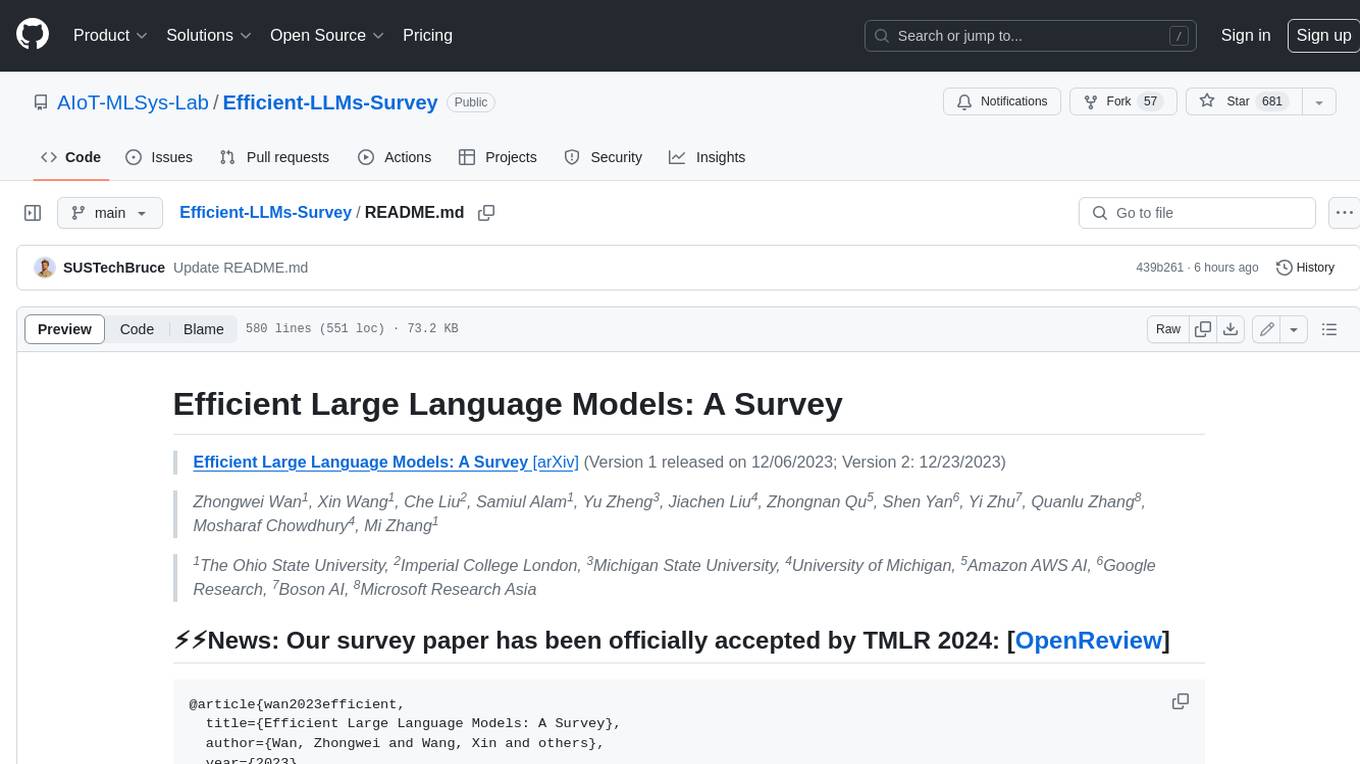
Efficient-LLMs-Survey
This repository provides a systematic and comprehensive review of efficient LLMs research. We organize the literature in a taxonomy consisting of three main categories, covering distinct yet interconnected efficient LLMs topics from **model-centric** , **data-centric** , and **framework-centric** perspective, respectively. We hope our survey and this GitHub repository can serve as valuable resources to help researchers and practitioners gain a systematic understanding of the research developments in efficient LLMs and inspire them to contribute to this important and exciting field.
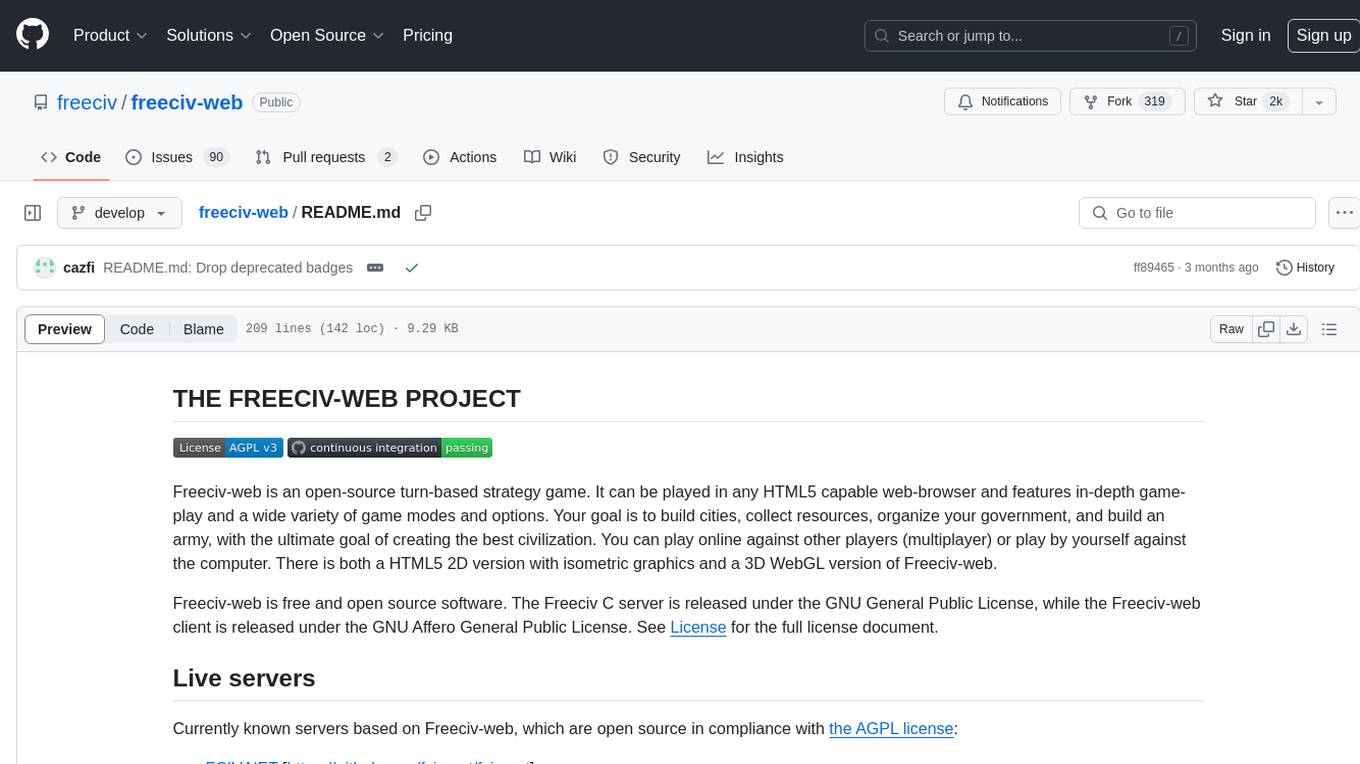
freeciv-web
Freeciv-web is an open-source turn-based strategy game that can be played in any HTML5 capable web-browser. It features in-depth gameplay, a wide variety of game modes and options. Players aim to build cities, collect resources, organize their government, and build an army to create the best civilization. The game offers both multiplayer and single-player modes, with a 2D version with isometric graphics and a 3D WebGL version available. The project consists of components like Freeciv-web, Freeciv C server, Freeciv-proxy, Publite2, and pbem for play-by-email support. Developers interested in contributing can check the GitHub issues and TODO file for tasks to work on.

weave
Weave is a toolkit for developing Generative AI applications, built by Weights & Biases. With Weave, you can log and debug language model inputs, outputs, and traces; build rigorous, apples-to-apples evaluations for language model use cases; and organize all the information generated across the LLM workflow, from experimentation to evaluations to production. Weave aims to bring rigor, best-practices, and composability to the inherently experimental process of developing Generative AI software, without introducing cognitive overhead.
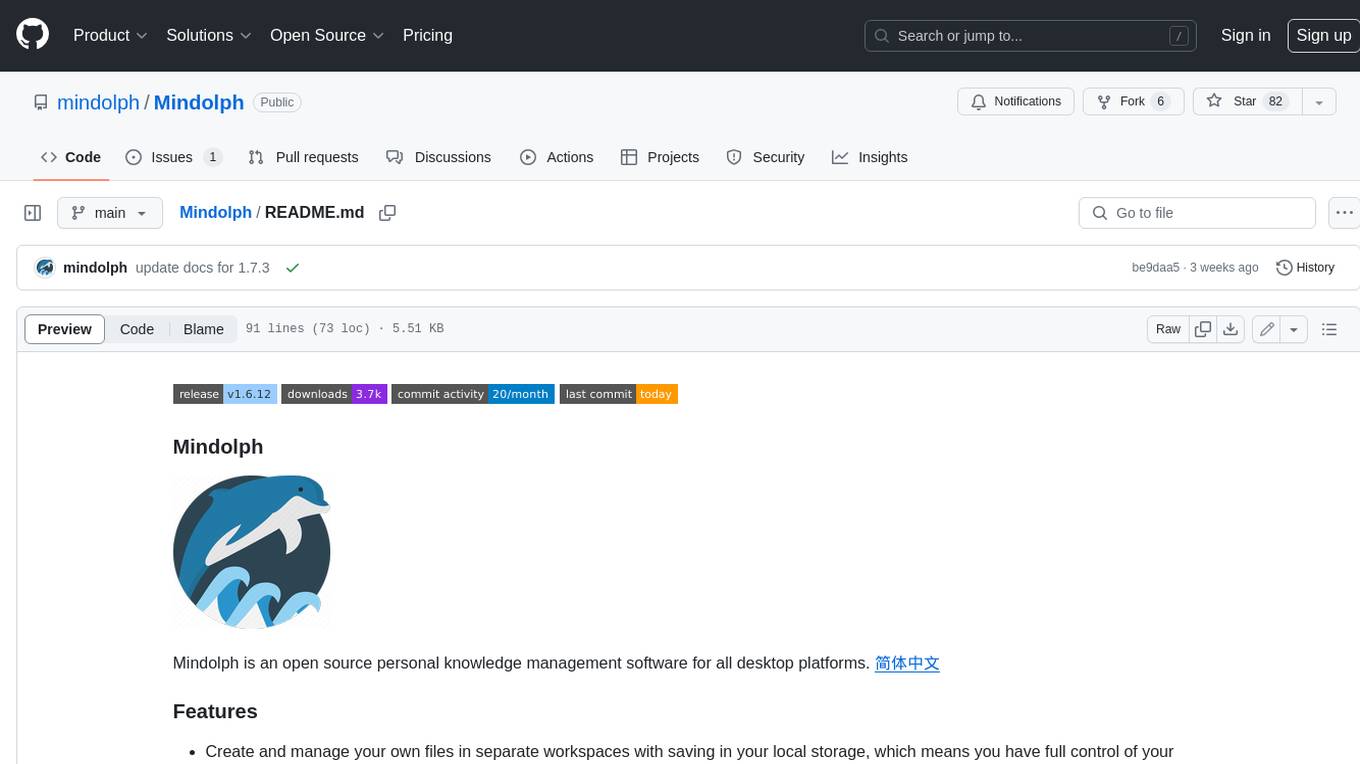
Mindolph
Mindolph is an open source personal knowledge management software for all desktop platforms. It allows users to create and manage their own files in separate workspaces with saving in their local storage, organize their files as a tree in their workspaces, and have multiple tabs for opening files instead of a single file window. Mindolph supports Mind Map, Markdown, PlantUML, CSV sheet, and plain text file formats. It also has features such as quickly navigating to files and searching text in files under a specific folder, editing mind maps easily and quickly with key shortcuts, supporting themes and providing some pre-defined themes, importing from other mind map formats, and exporting to other file formats.
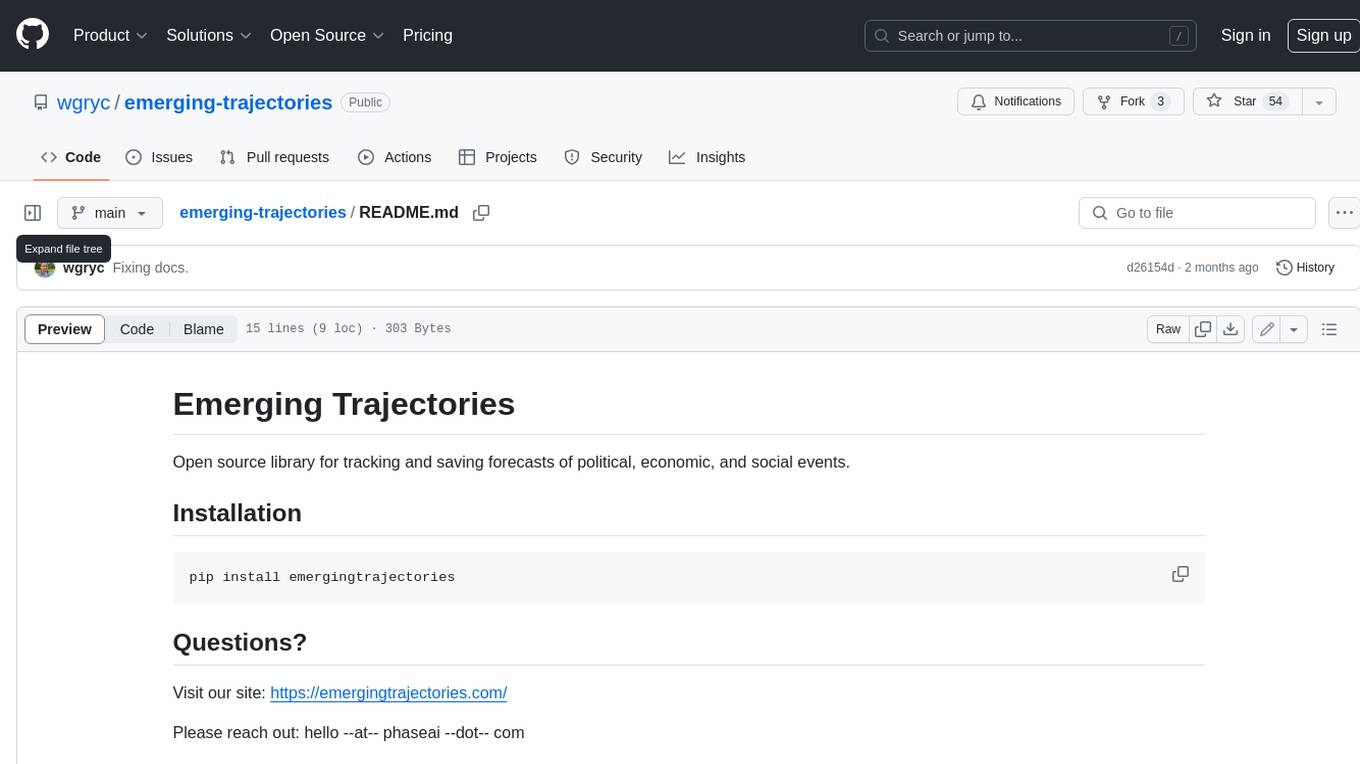
emerging-trajectories
Emerging Trajectories is an open source library for tracking and saving forecasts of political, economic, and social events. It provides a way to organize and store forecasts, as well as track their accuracy over time. This can be useful for researchers, analysts, and anyone else who wants to keep track of their predictions.
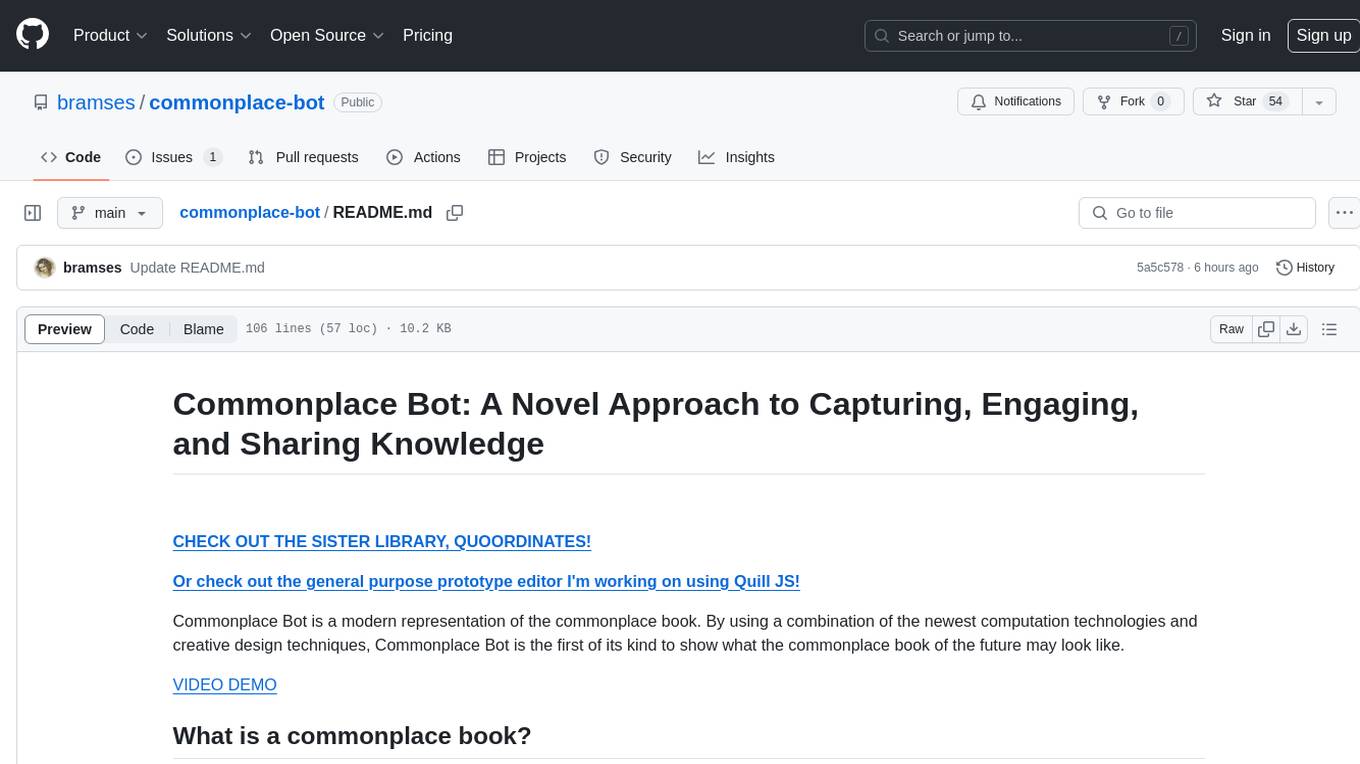
commonplace-bot
Commonplace Bot is a modern representation of the commonplace book, leveraging modern technological advancements in computation, data storage, machine learning, and networking. It aims to capture, engage, and share knowledge by providing a platform for users to collect ideas, quotes, and information, organize them efficiently, engage with the data through various strategies and triggers, and transform the data into new mediums for sharing. The tool utilizes embeddings and cached transformations for efficient data storage and retrieval, flips traditional engagement rules by engaging with the user, and enables users to alchemize raw data into new forms like art prompts. Commonplace Bot offers a unique approach to knowledge management and creative expression.
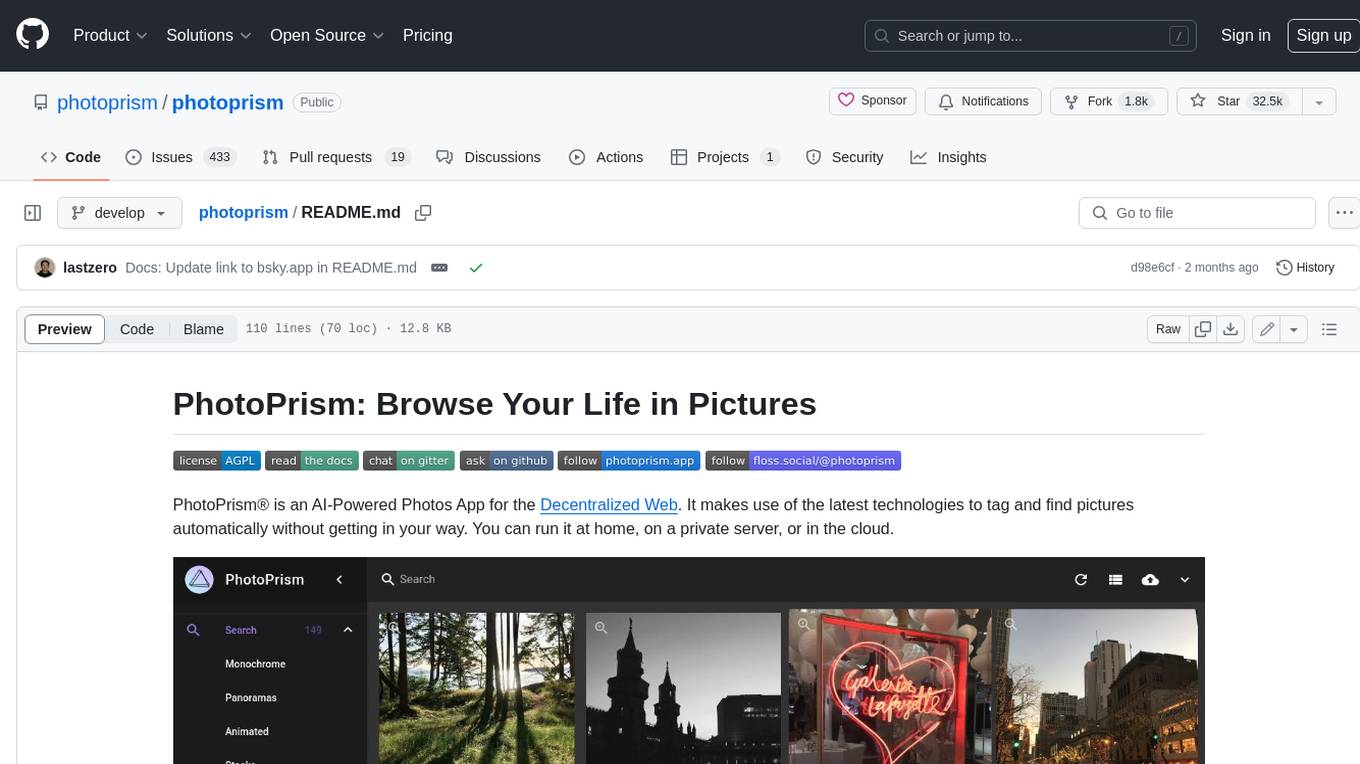
photoprism
PhotoPrism is an AI-powered photos app for the decentralized web. It uses the latest technologies to tag and find pictures automatically without getting in your way. You can run it at home, on a private server, or in the cloud.
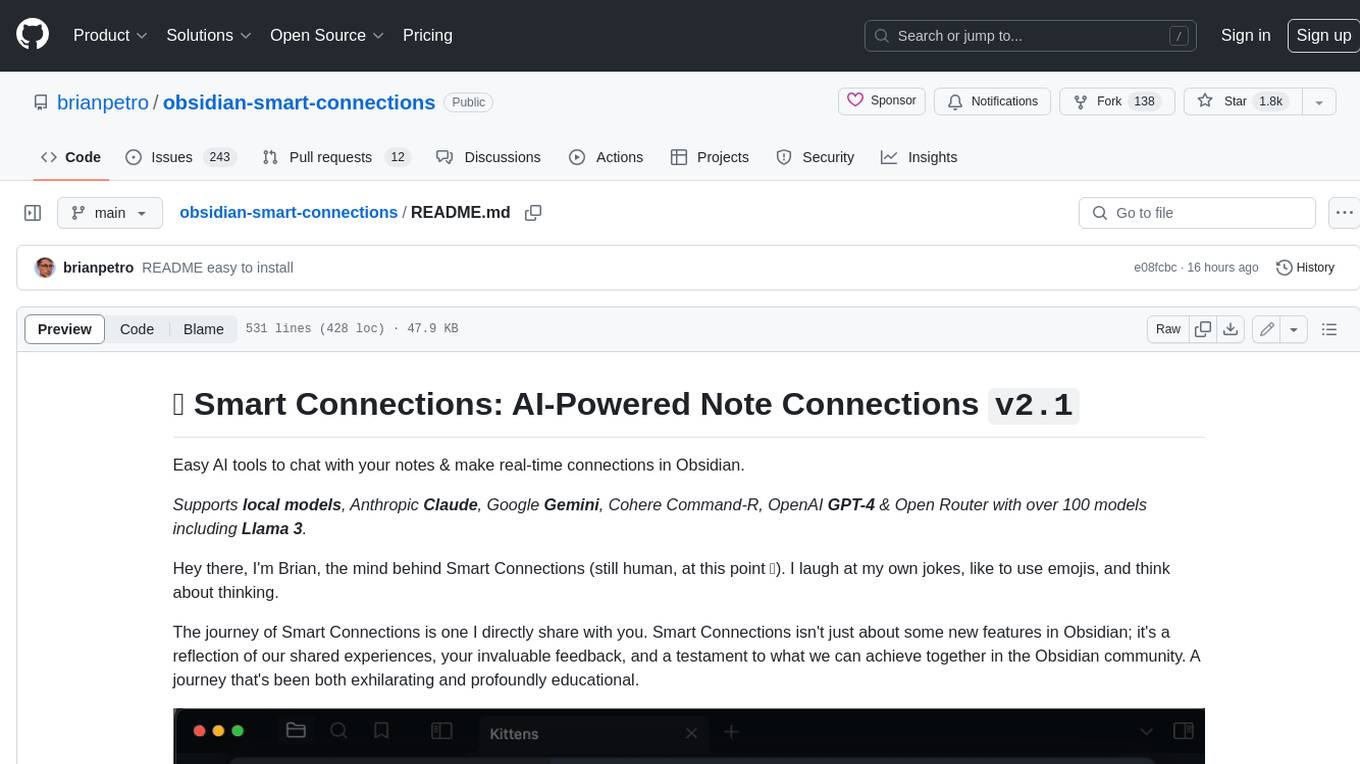
obsidian-smart-connections
Smart Connections is an AI-powered plugin for Obsidian that helps you discover hidden connections and insights in your notes. With features like Smart View for real-time relevant note suggestions and Smart Chat for chatting with your notes, Smart Connections makes it easier than ever to stay organized and uncover hidden connections between your notes. Its intuitive interface and customizable settings ensure a seamless experience, tailored to your unique needs and preferences.

exif-photo-blog
EXIF Photo Blog is a full-stack photo blog application built with Next.js, Vercel, and Postgres. It features built-in authentication, photo upload with EXIF extraction, photo organization by tag, infinite scroll, light/dark mode, automatic OG image generation, a CMD-K menu with photo search, experimental support for AI-generated descriptions, and support for Fujifilm simulations. The application is easy to deploy to Vercel with just a few clicks and can be customized with a variety of environment variables.
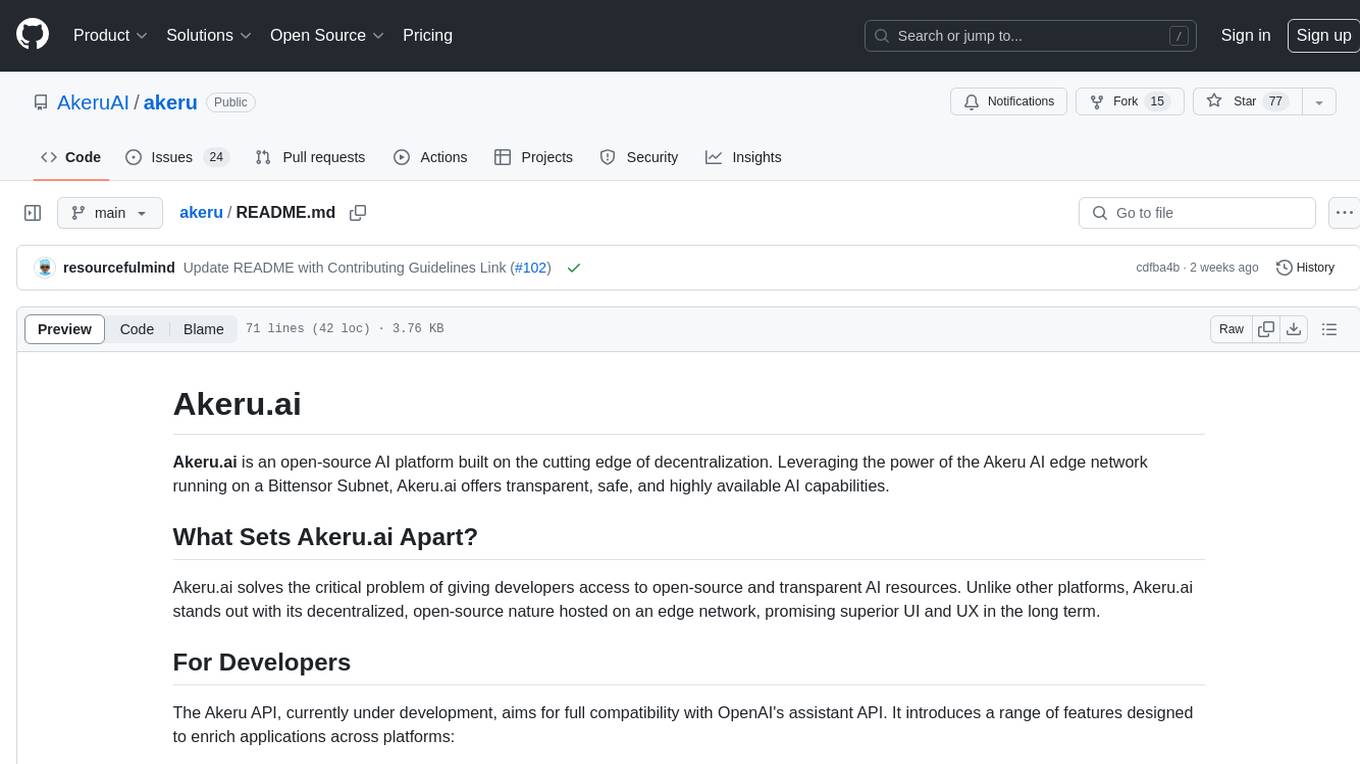
akeru
Akeru.ai is an open-source AI platform leveraging the power of decentralization. It offers transparent, safe, and highly available AI capabilities. The platform aims to give developers access to open-source and transparent AI resources through its decentralized nature hosted on an edge network. Akeru API introduces features like retrieval, function calling, conversation management, custom instructions, data input optimization, user privacy, testing and iteration, and comprehensive documentation. It is ideal for creating AI agents and enhancing web and mobile applications with advanced AI capabilities. The platform runs on a Bittensor Subnet design that aims to democratize AI technology and promote an equitable AI future. Akeru.ai embraces decentralization challenges to ensure a decentralized and equitable AI ecosystem with security features like watermarking and network pings. The API architecture integrates with technologies like Bun, Redis, and Elysia for a robust, scalable solution.
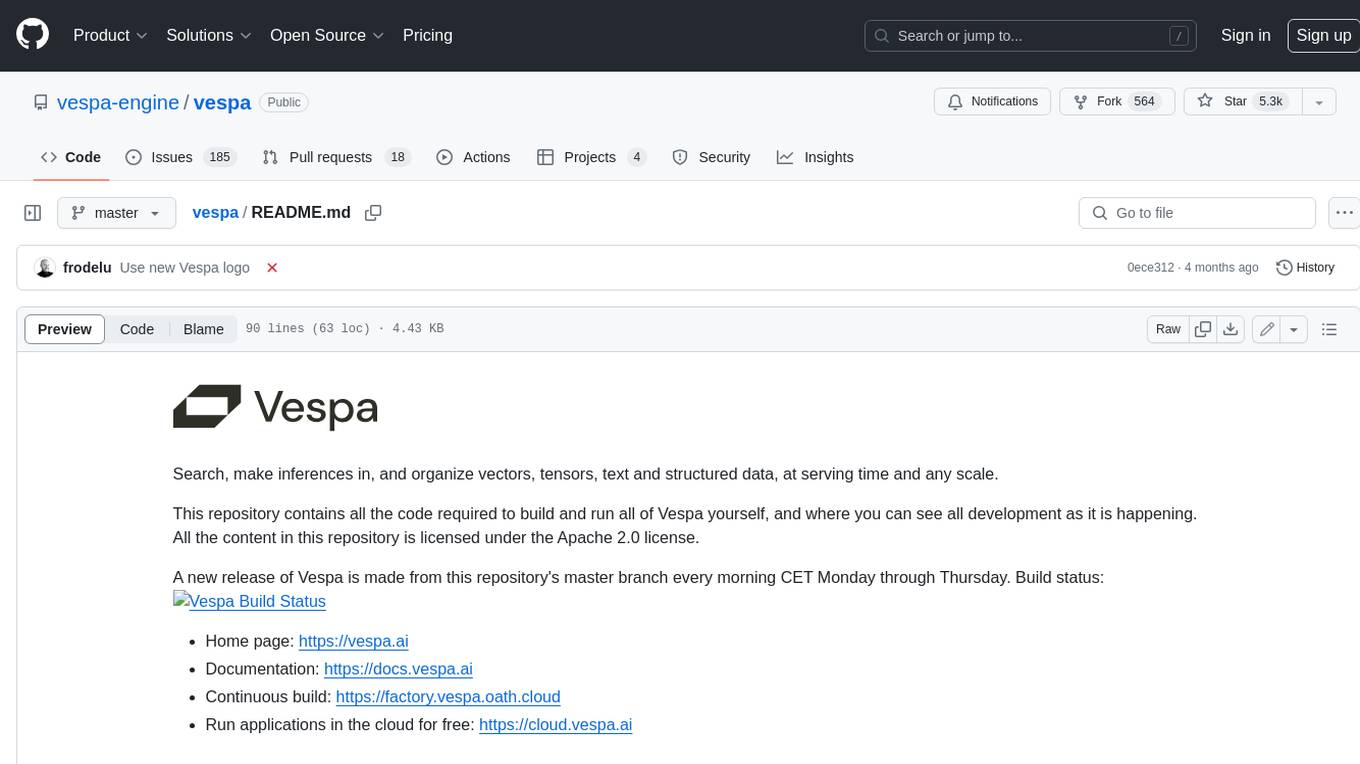
vespa
Vespa is a platform that performs operations such as selecting a subset of data in a large corpus, evaluating machine-learned models over the selected data, organizing and aggregating it, and returning it, typically in less than 100 milliseconds, all while the data corpus is continuously changing. It has been in development for many years and is used on a number of large internet services and apps which serve hundreds of thousands of queries from Vespa per second.

auto-news
Auto-News is an automatic news aggregator tool that utilizes Large Language Models (LLM) to pull information from various sources such as Tweets, RSS feeds, YouTube videos, web articles, Reddit, and journal notes. The tool aims to help users efficiently read and filter content based on personal interests, providing a unified reading experience and organizing information effectively. It features feed aggregation with summarization, transcript generation for videos and articles, noise reduction, task organization, and deep dive topic exploration. The tool supports multiple LLM backends, offers weekly top-k aggregations, and can be deployed on Linux/MacOS using docker-compose or Kubernetes.
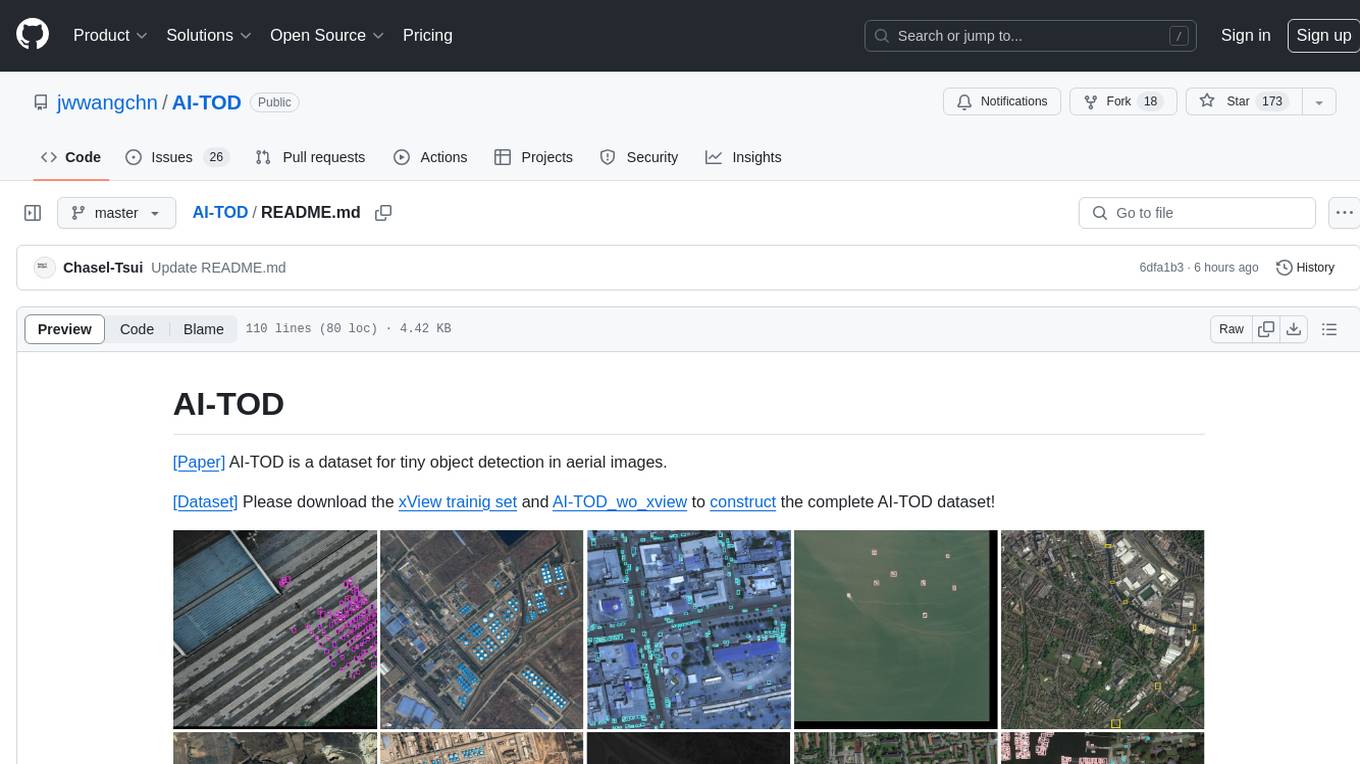
AI-TOD
AI-TOD is a dataset for tiny object detection in aerial images, containing 700,621 object instances across 28,036 images. Objects in AI-TOD are smaller with a mean size of 12.8 pixels compared to other aerial image datasets. To use AI-TOD, download xView training set and AI-TOD_wo_xview, then generate the complete dataset using the provided synthesis tool. The dataset is publicly available for academic and research purposes under CC BY-NC-SA 4.0 license.
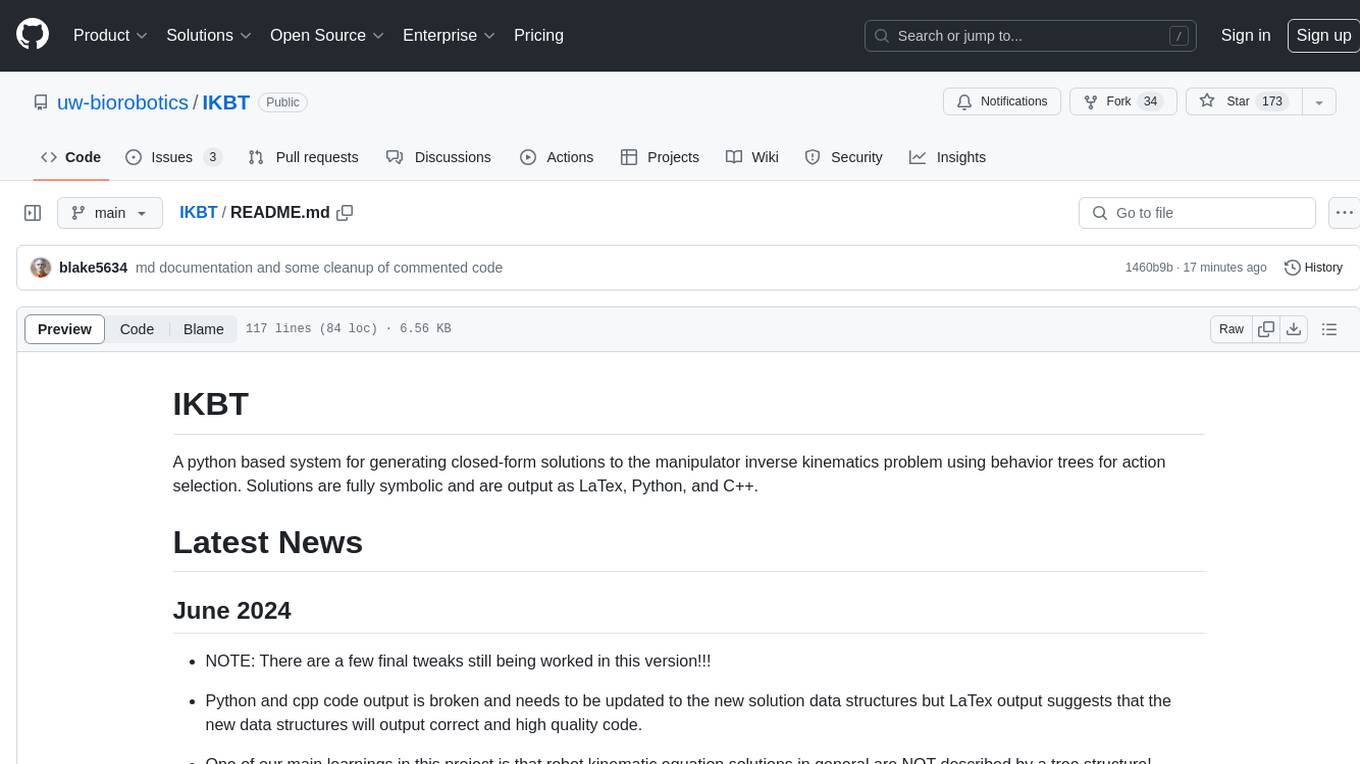
IKBT
IKBT is a Python-based system for generating closed-form solutions to the manipulator inverse kinematics problem using behavior trees for action selection. Solutions are fully symbolic and are output as LaTex, Python, and C++. The tool automates closed-form kinematics solving by organizing solution algorithms in a behavior tree, incorporating frequently used knowledge, generating a dependency graph of joint variables, and providing features for automatic documentation and code generation. It is implemented in Python with minimal dependencies outside of the standard Python distribution.
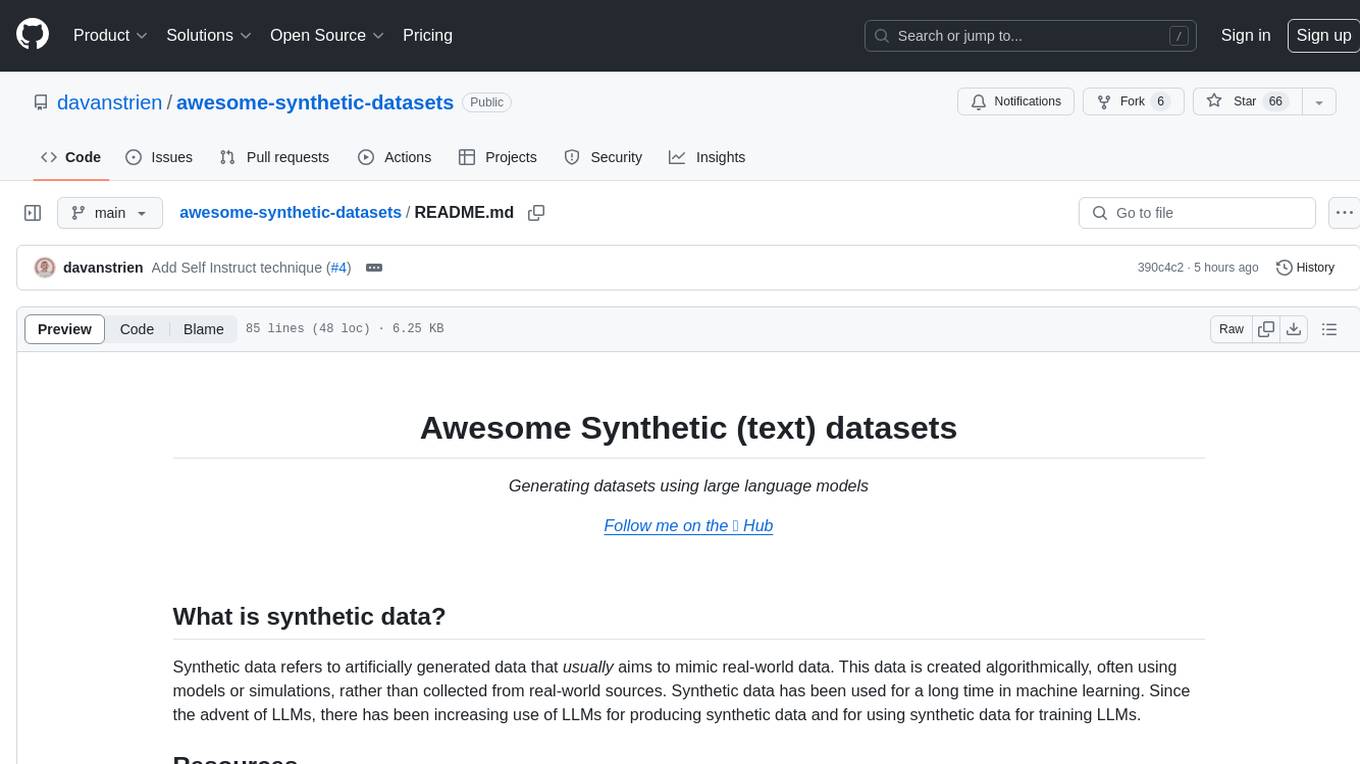
awesome-synthetic-datasets
This repository focuses on organizing resources for building synthetic datasets using large language models. It covers important datasets, libraries, tools, tutorials, and papers related to synthetic data generation. The goal is to provide pragmatic and practical resources for individuals interested in creating synthetic datasets for machine learning applications.
20 - OpenAI Gpts

Voyager | Organize & Budget your Trip ✈️🌴
Friendly AI travel companion for personalized trip planning.
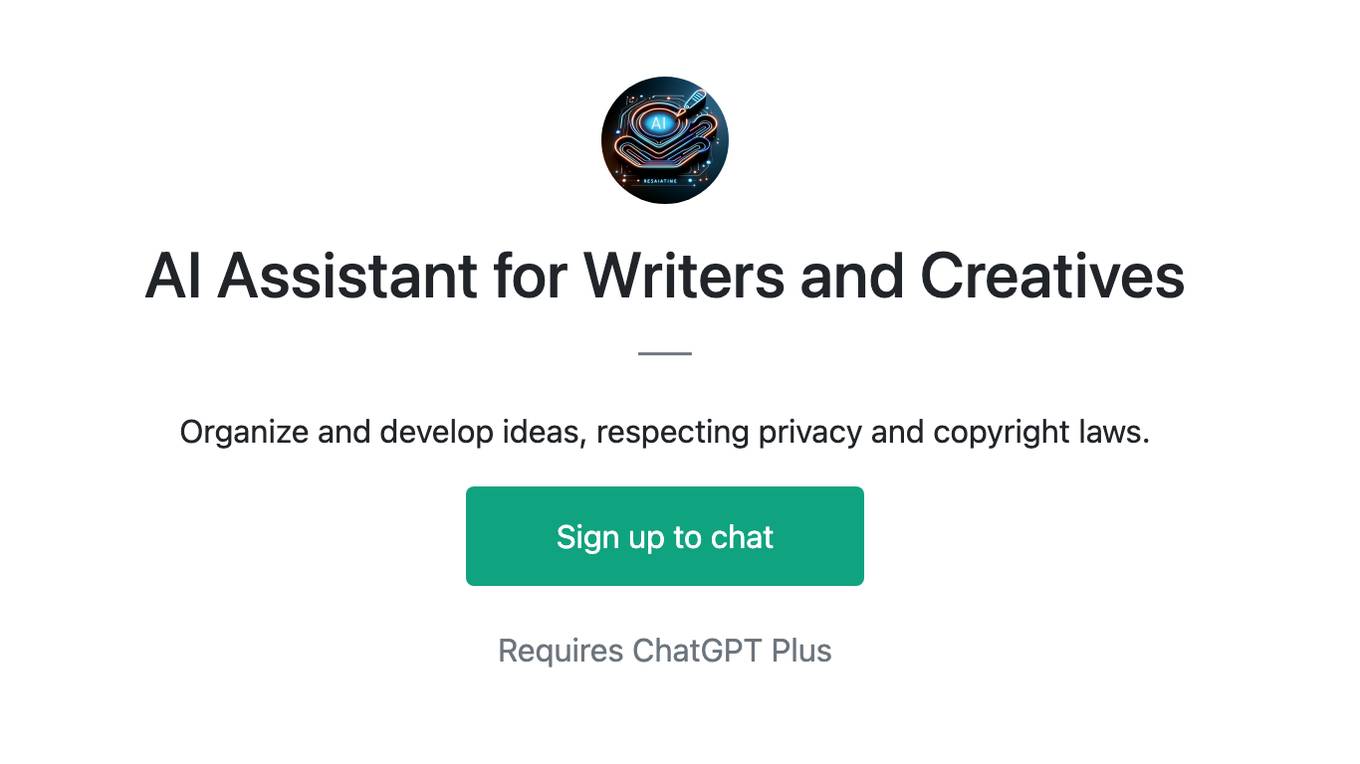
AI Assistant for Writers and Creatives
Organize and develop ideas, respecting privacy and copyright laws.
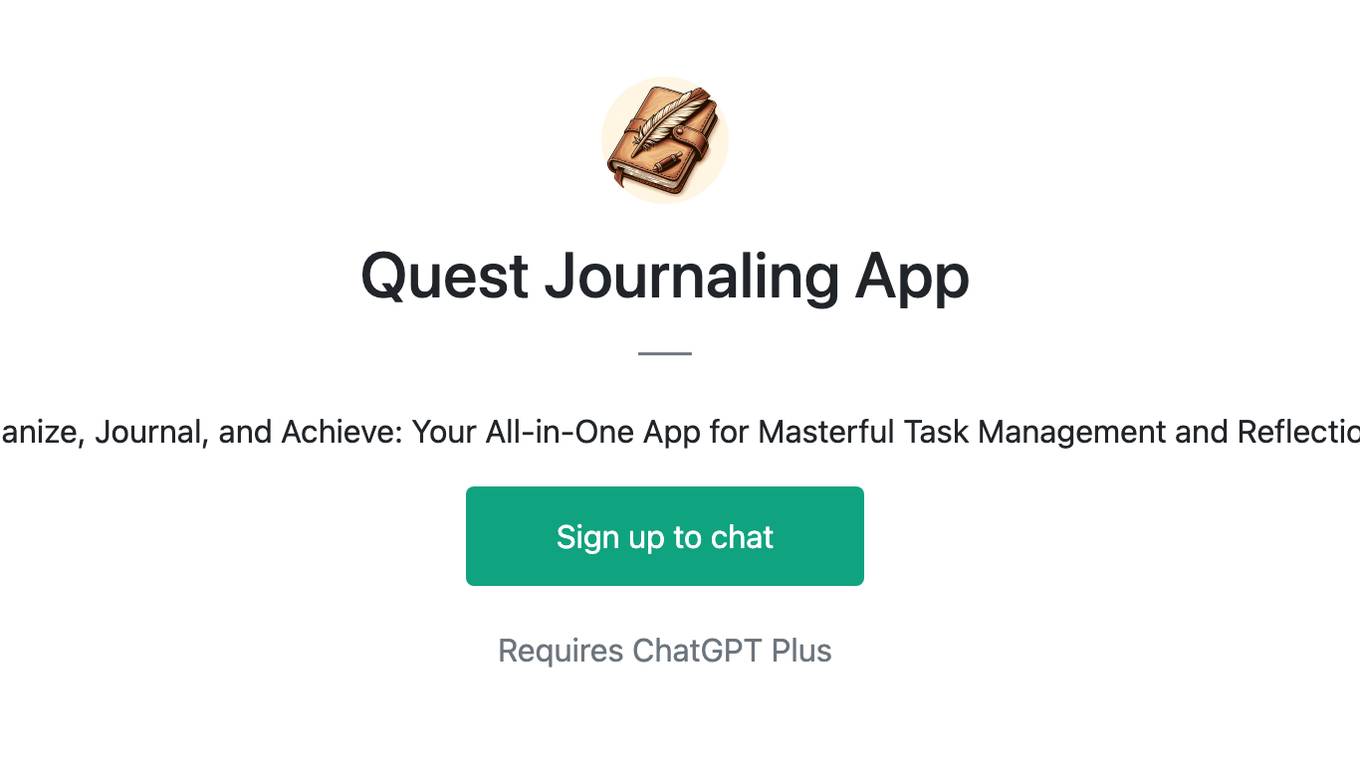
Quest Journaling App
Organize, Journal, and Achieve: Your All-in-One App for Masterful Task Management and Reflection
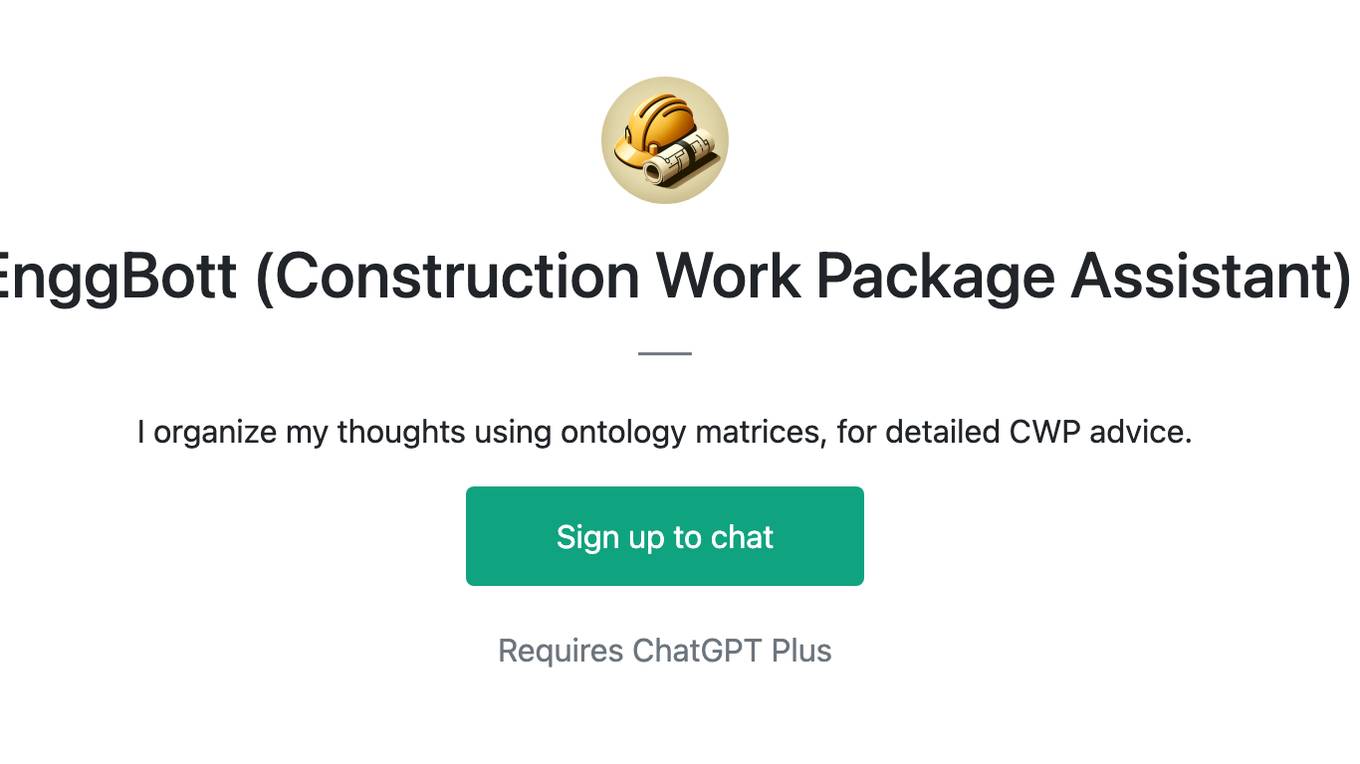
EnggBott (Construction Work Package Assistant)
I organize my thoughts using ontology matrices, for detailed CWP advice.

Emotional Well-being Coach AI
I help organize your feelings when you're feeling unclear or frustrated etc and aware of important matters. It's also great for sharing happy moments. I support your emotional well-being and self-understanding.
GhostWriter | BrainDump
I brainstorm and organize story ideas into structured events, world facts, and character outlines. Elevate your storytelling craft with Fiction Flow's GhostWriter series; learn more at fictionflow.io.

RAM Rally Planner
I help plan and organize RAM Rallies. A RAM Rally is a unique type of rally geared toward adventure motorcycle and dual sport riders of all skill levels.

Clean My Room
I help declutter your space by analyzing room photos and suggesting what to organize.
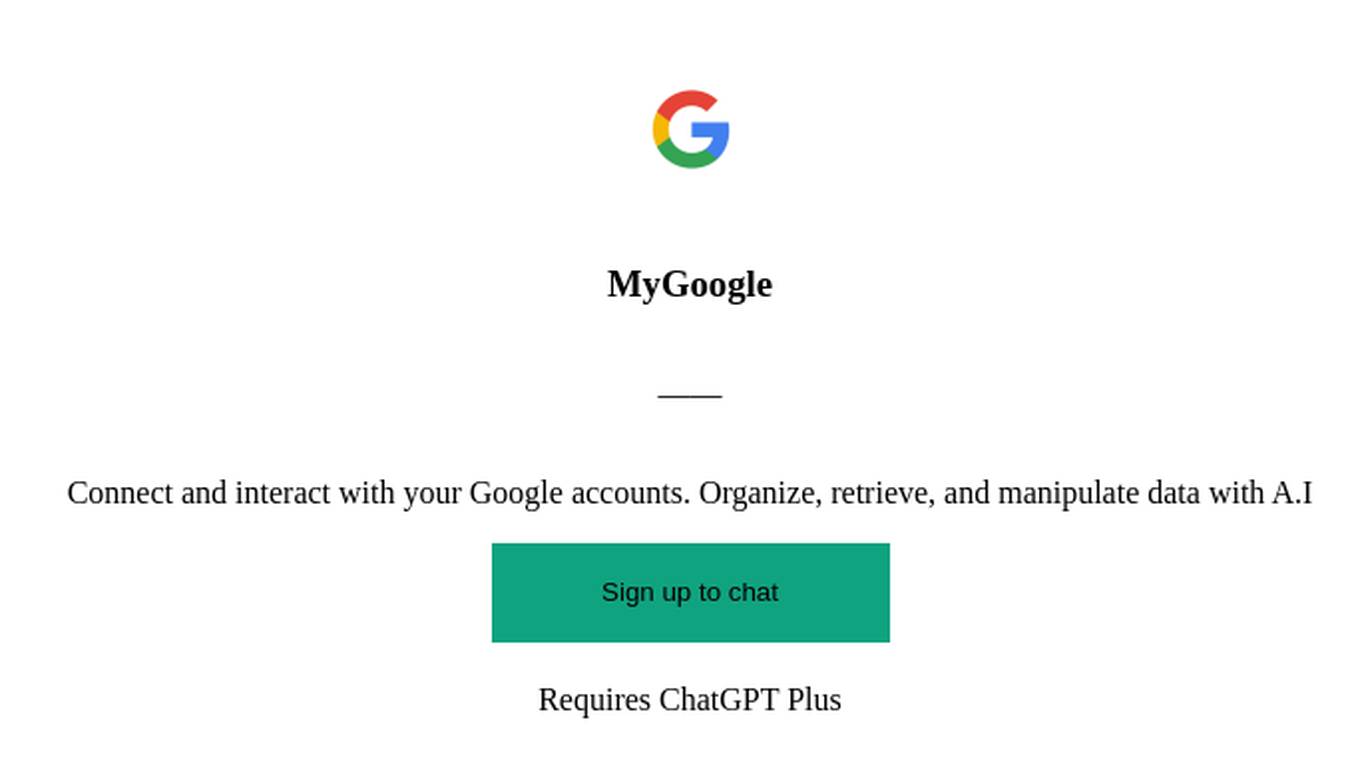
MyGoogle
Connect and interact with your Google accounts. Organize, retrieve, and manipulate data with A.I
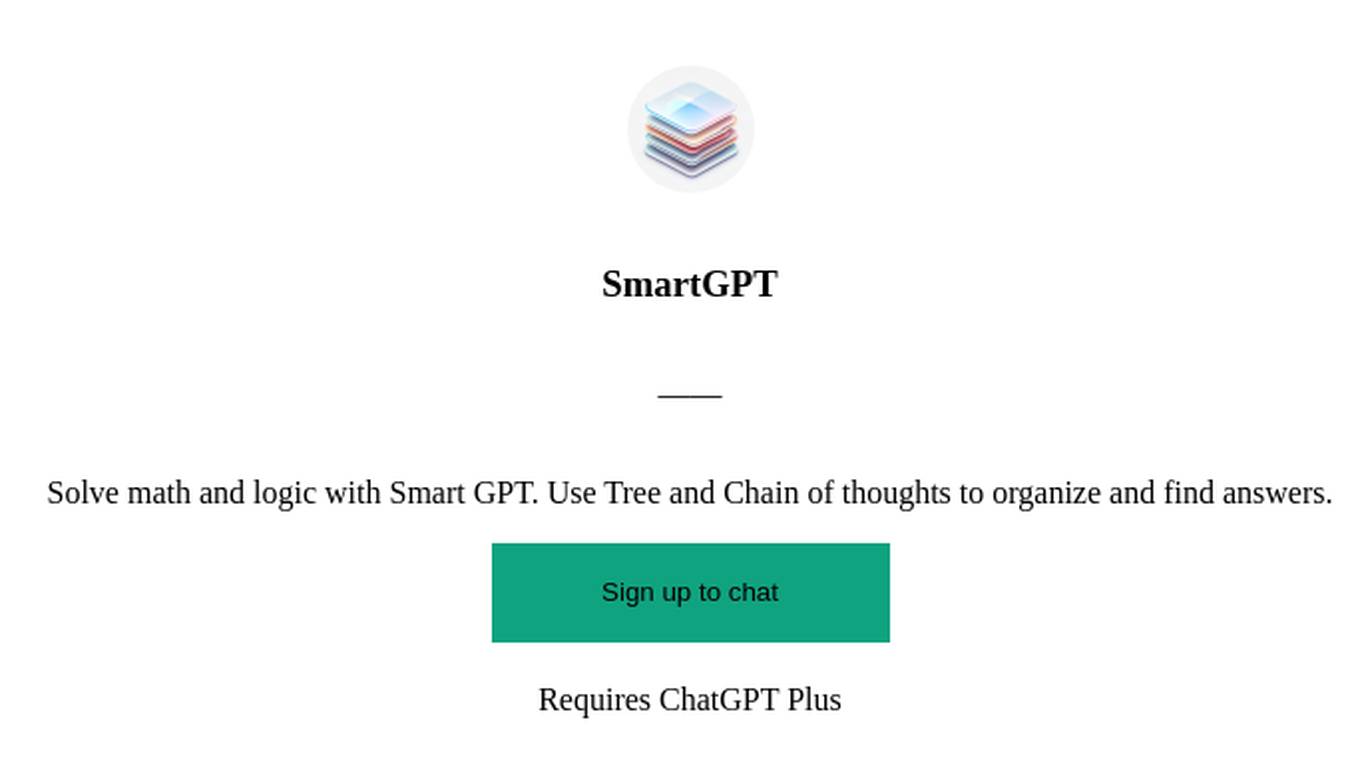
SmartGPT
Solve math and logic with Smart GPT. Use Tree and Chain of thoughts to organize and find answers.

Fashion Designer: Runway Showdown
Step into the world of high fashion. As runway designers, they create unique collections, organize dazzling fashion shows, and stay ahead of the latest trends. It blends elements of design, marketing, and business management in the glamorous fashion industry
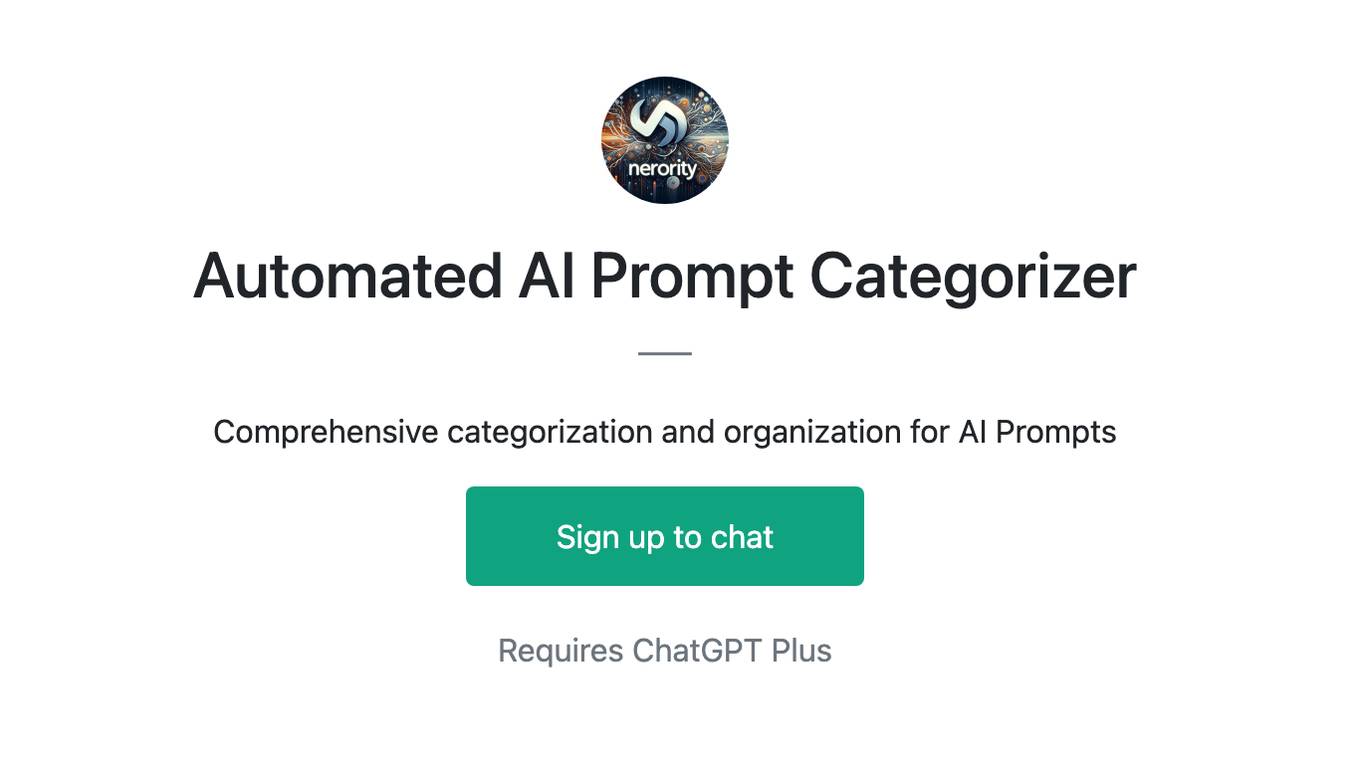
Automated AI Prompt Categorizer
Comprehensive categorization and organization for AI Prompts

Software Kanban Management Advisor
Guides software development processes through Kanban methodologies.
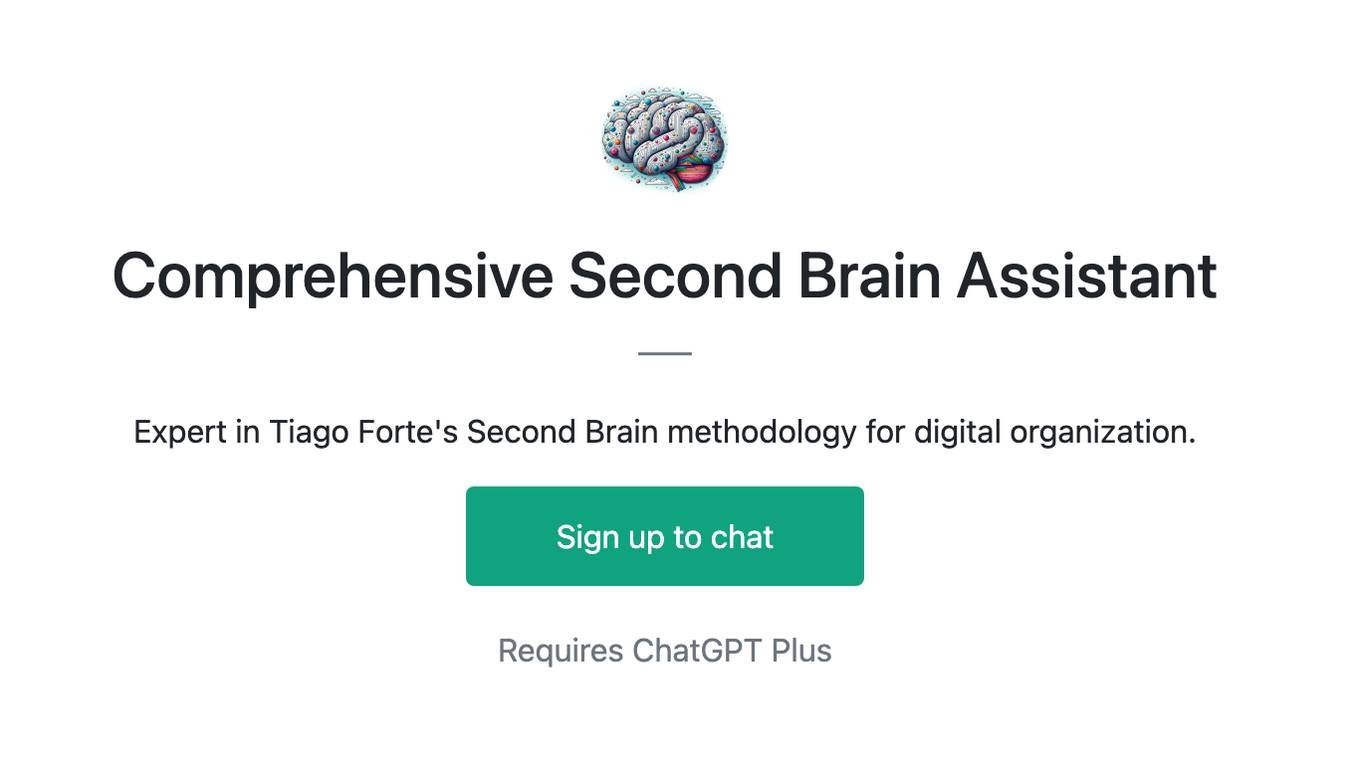
Comprehensive Second Brain Assistant
Expert in Tiago Forte's Second Brain methodology for digital organization.
